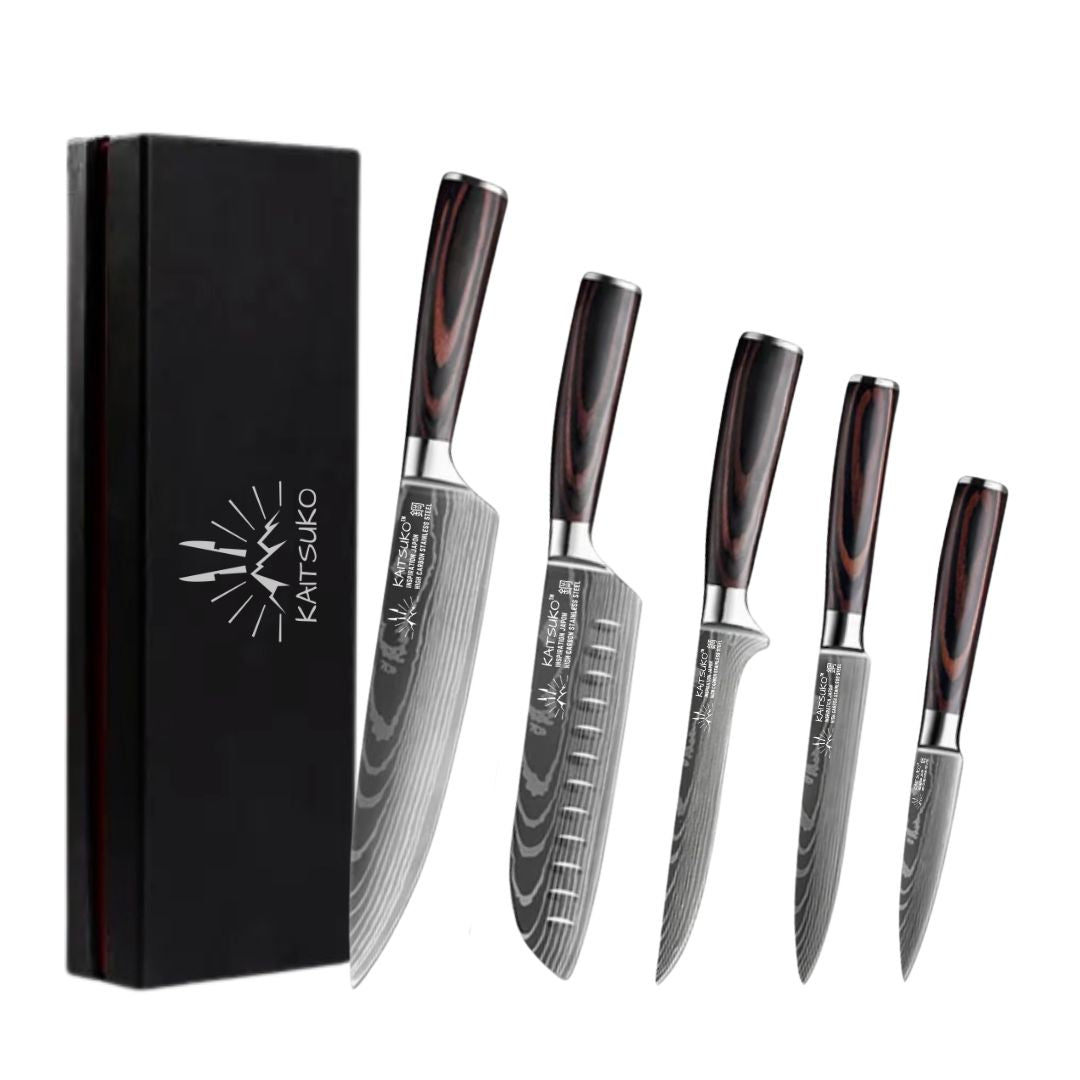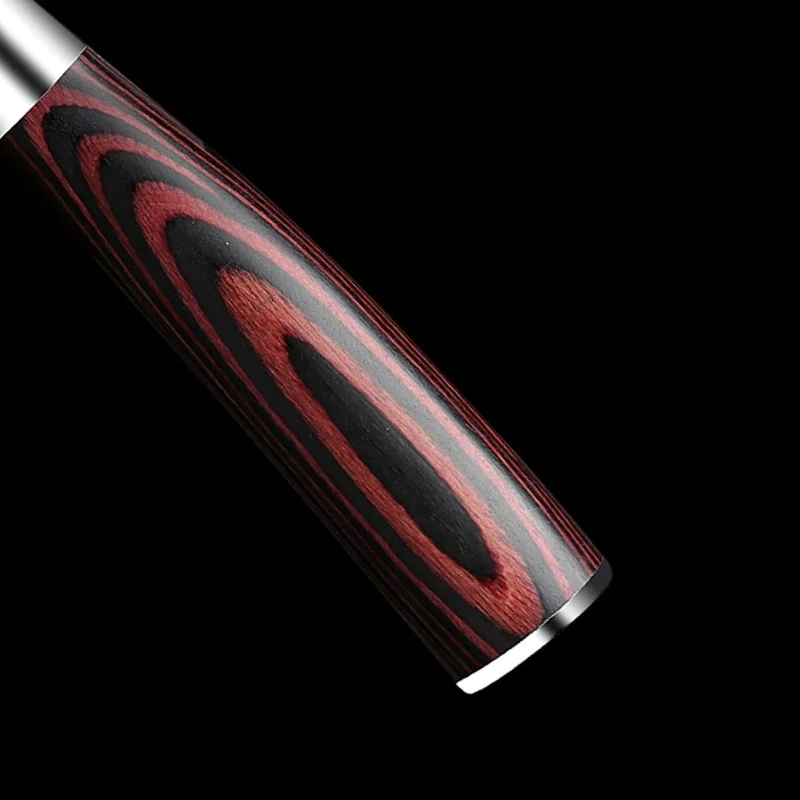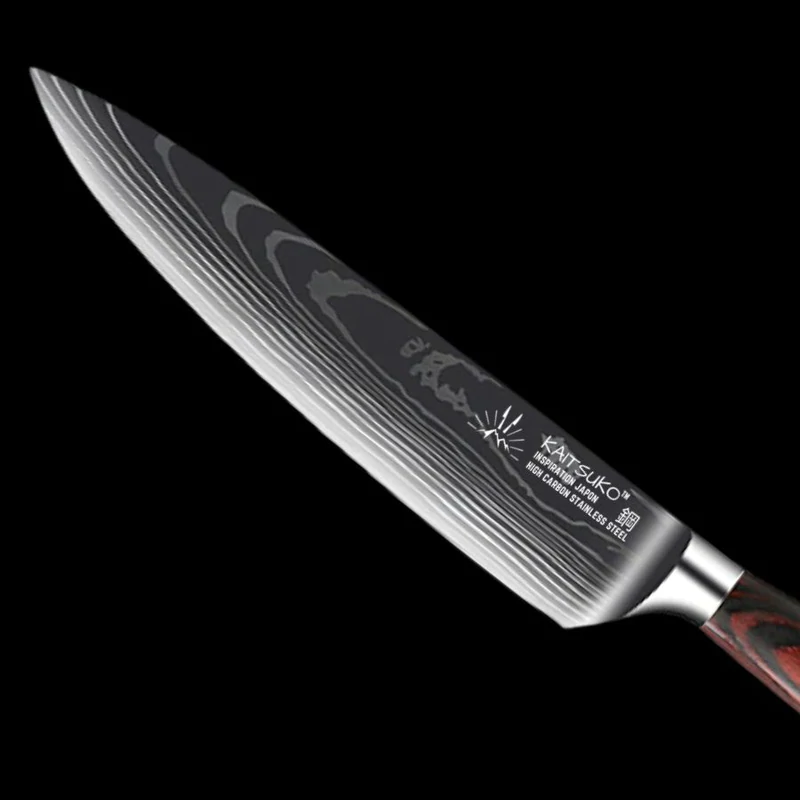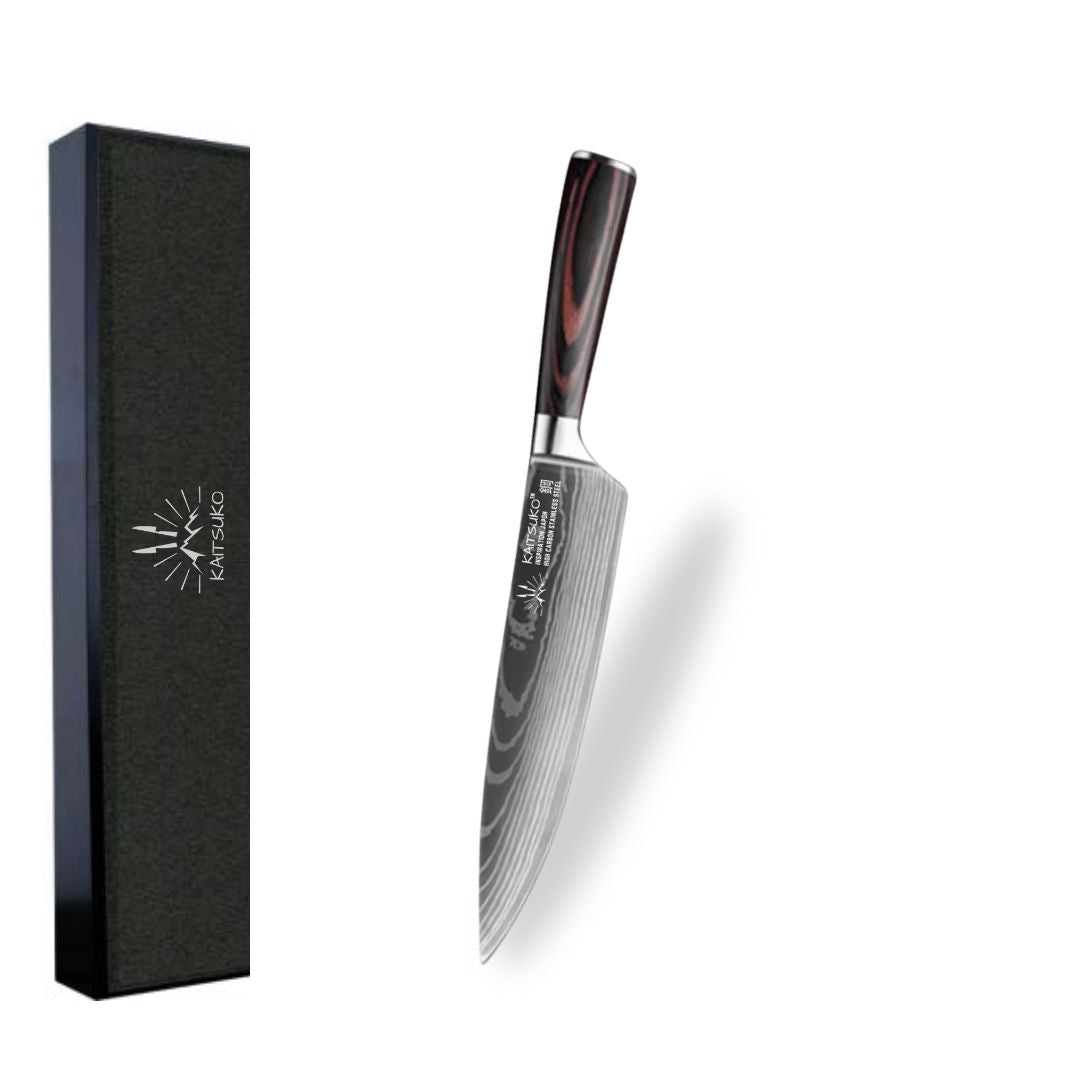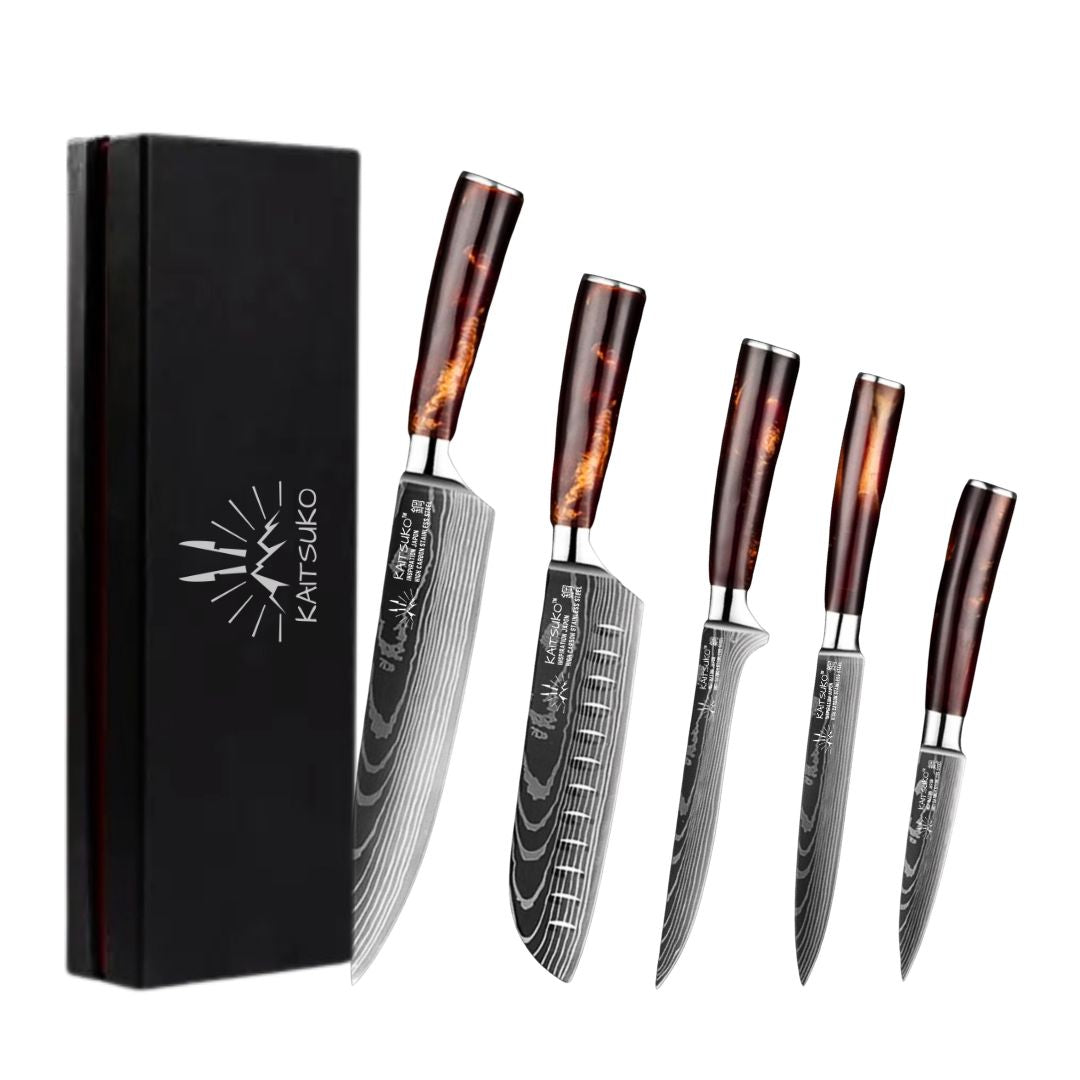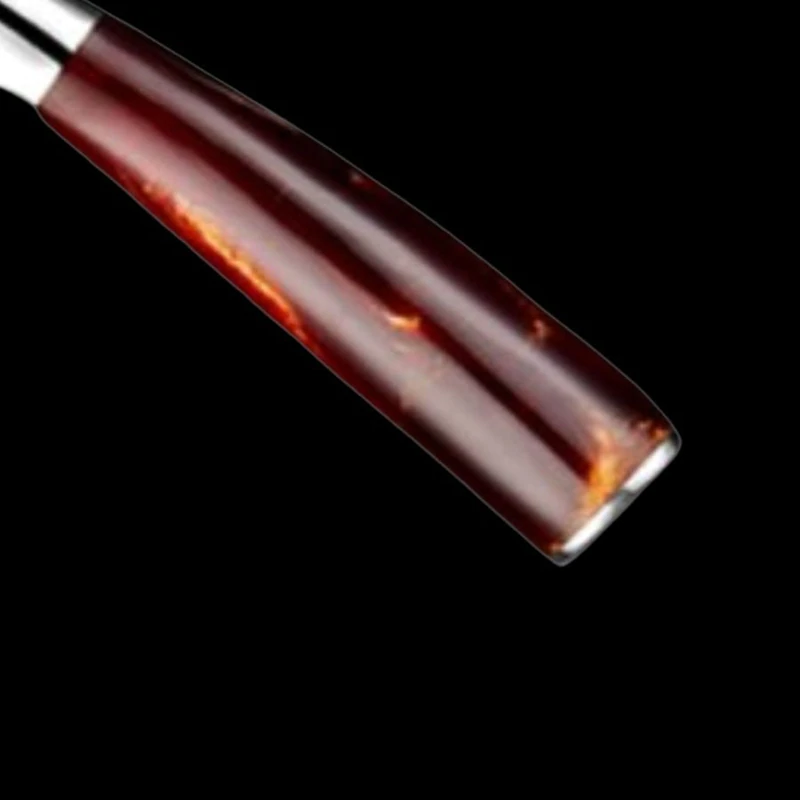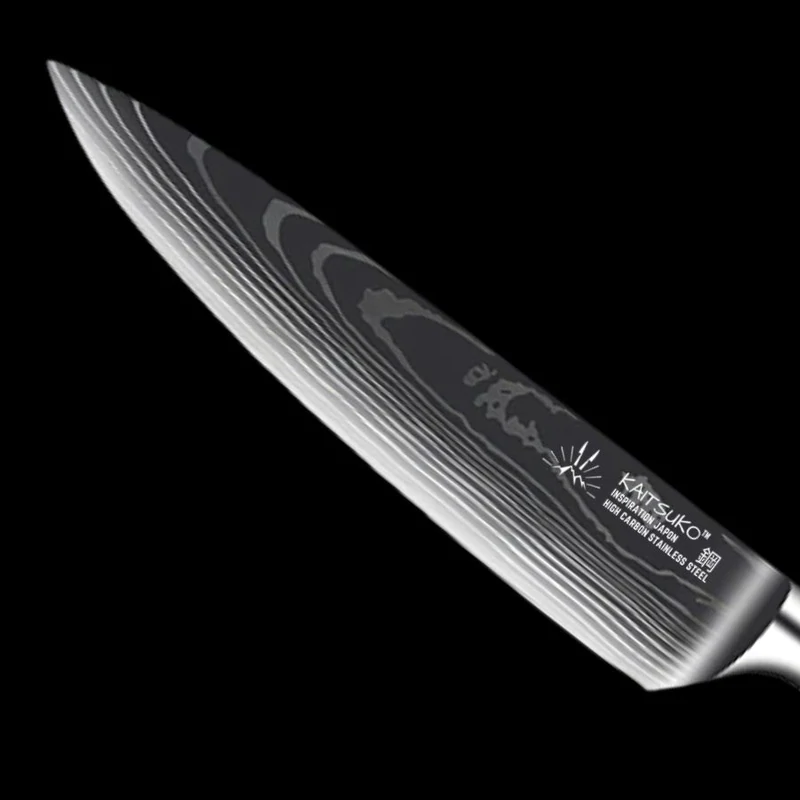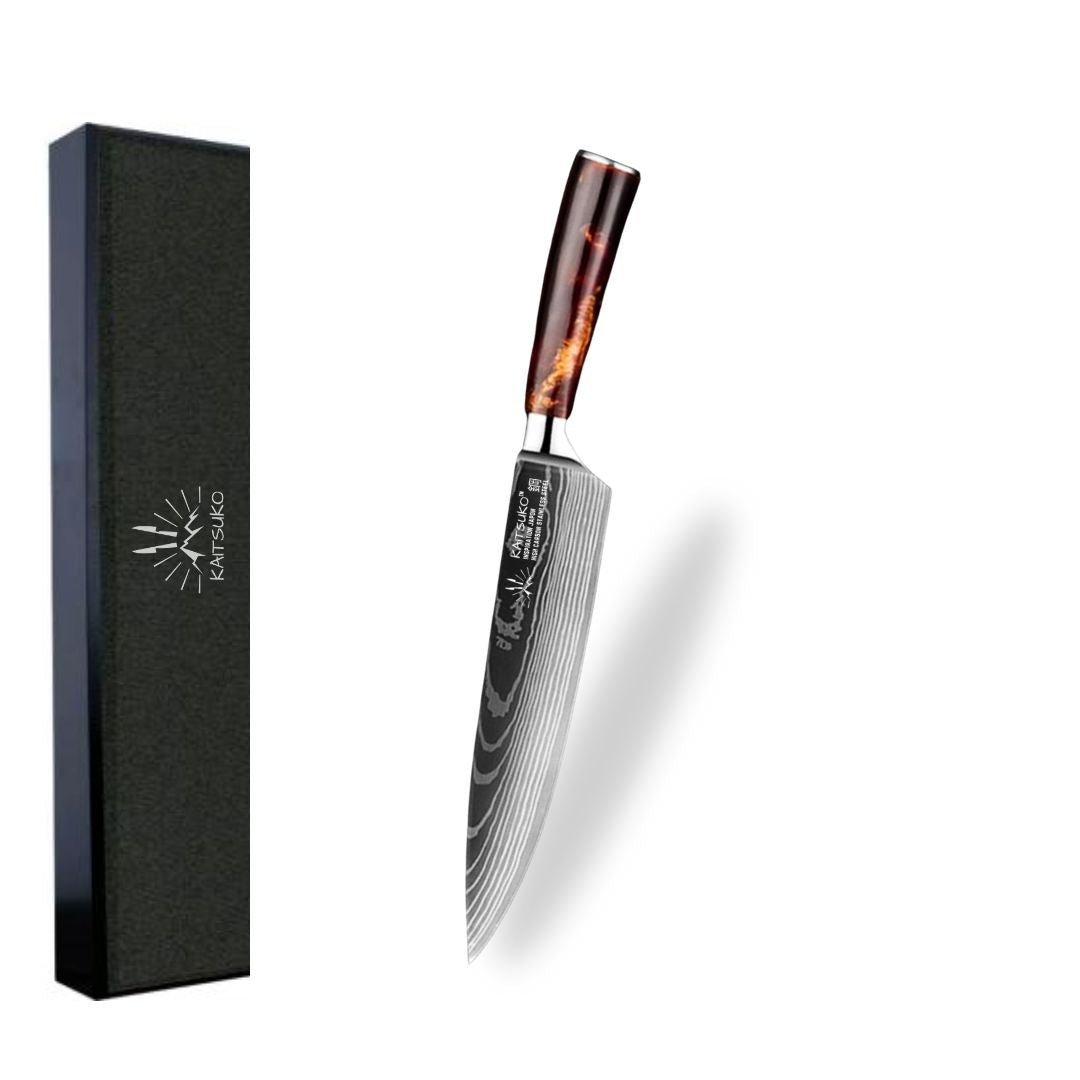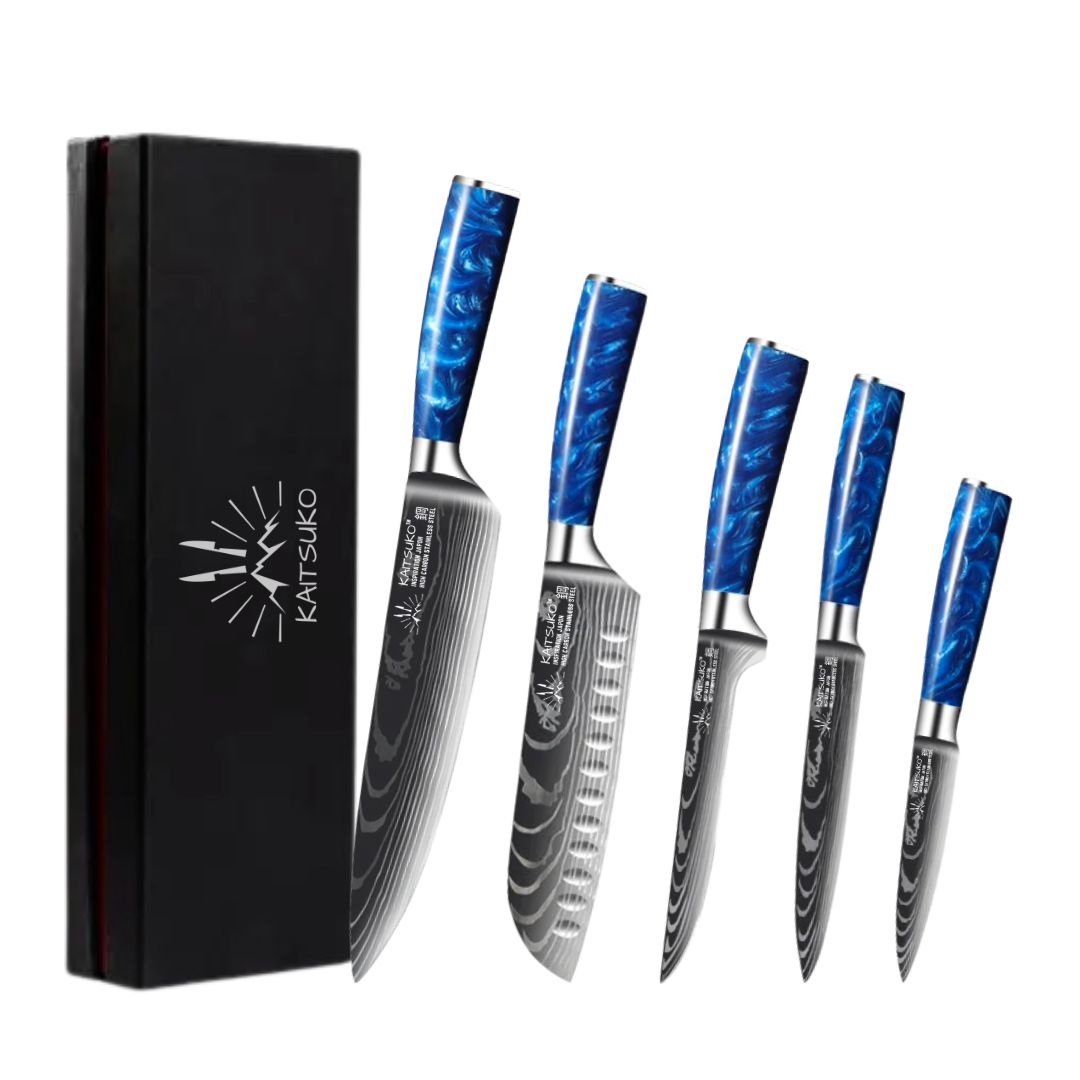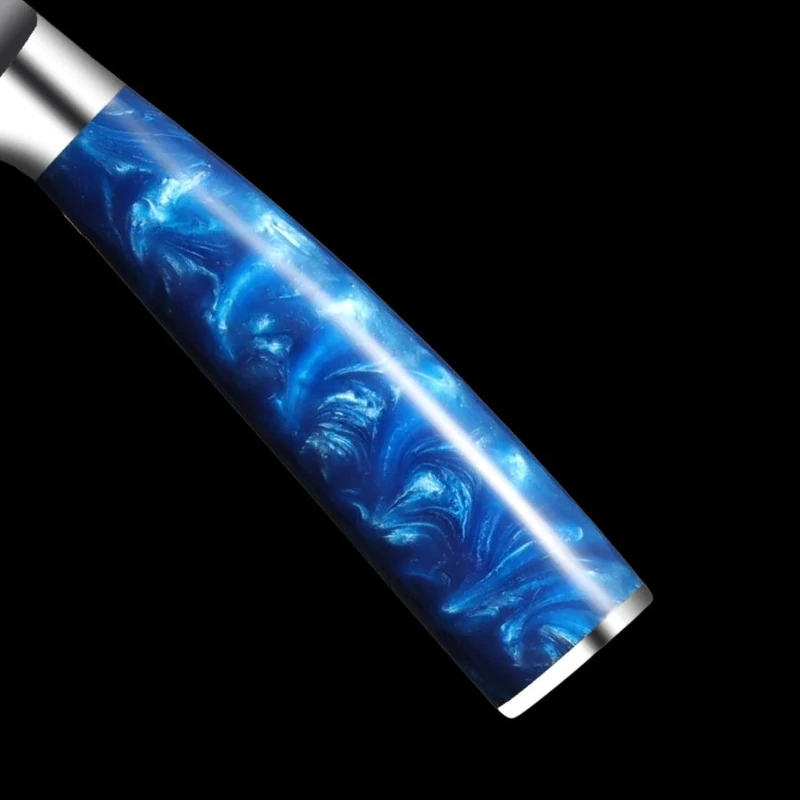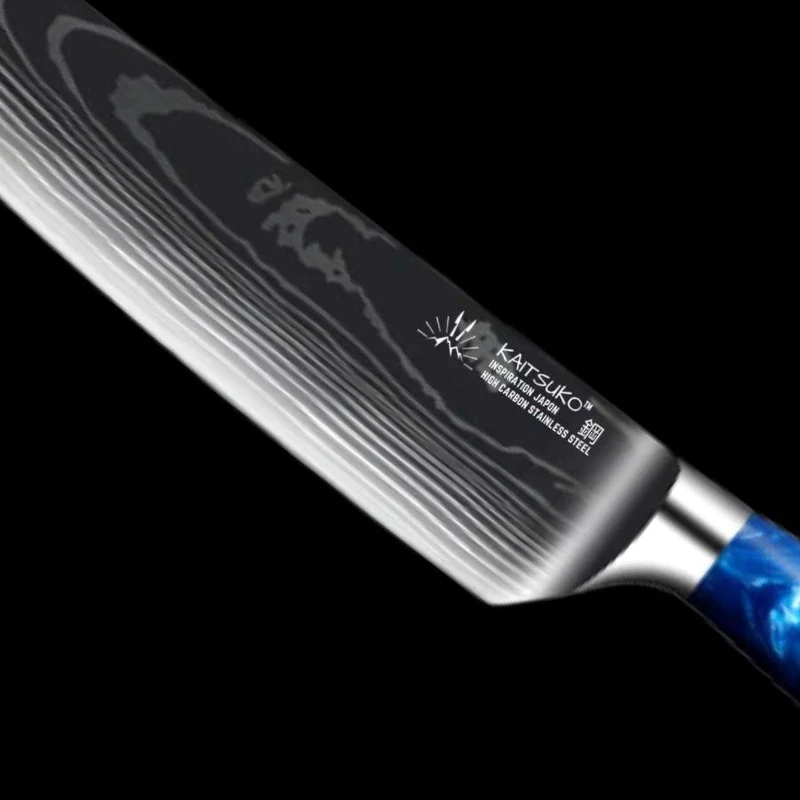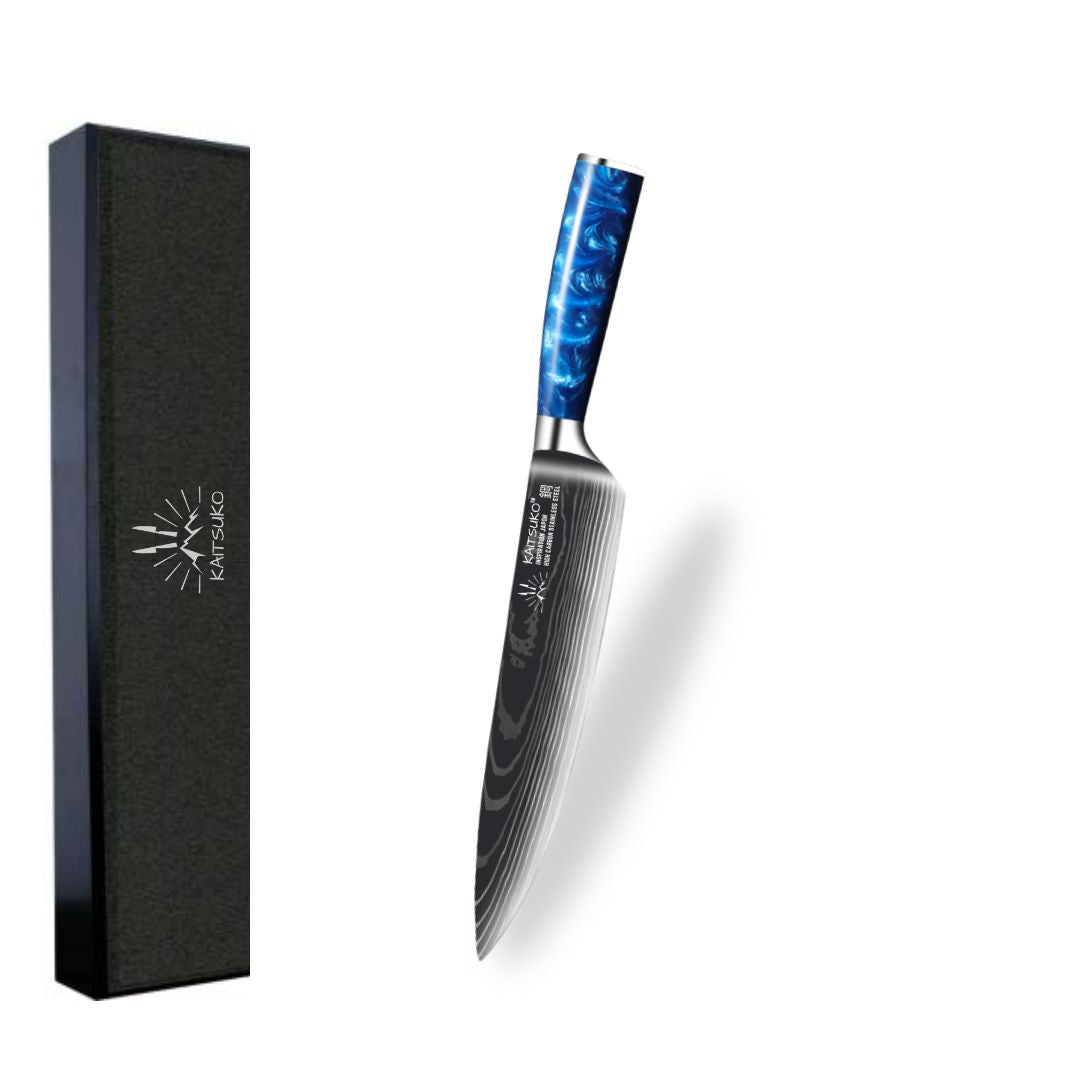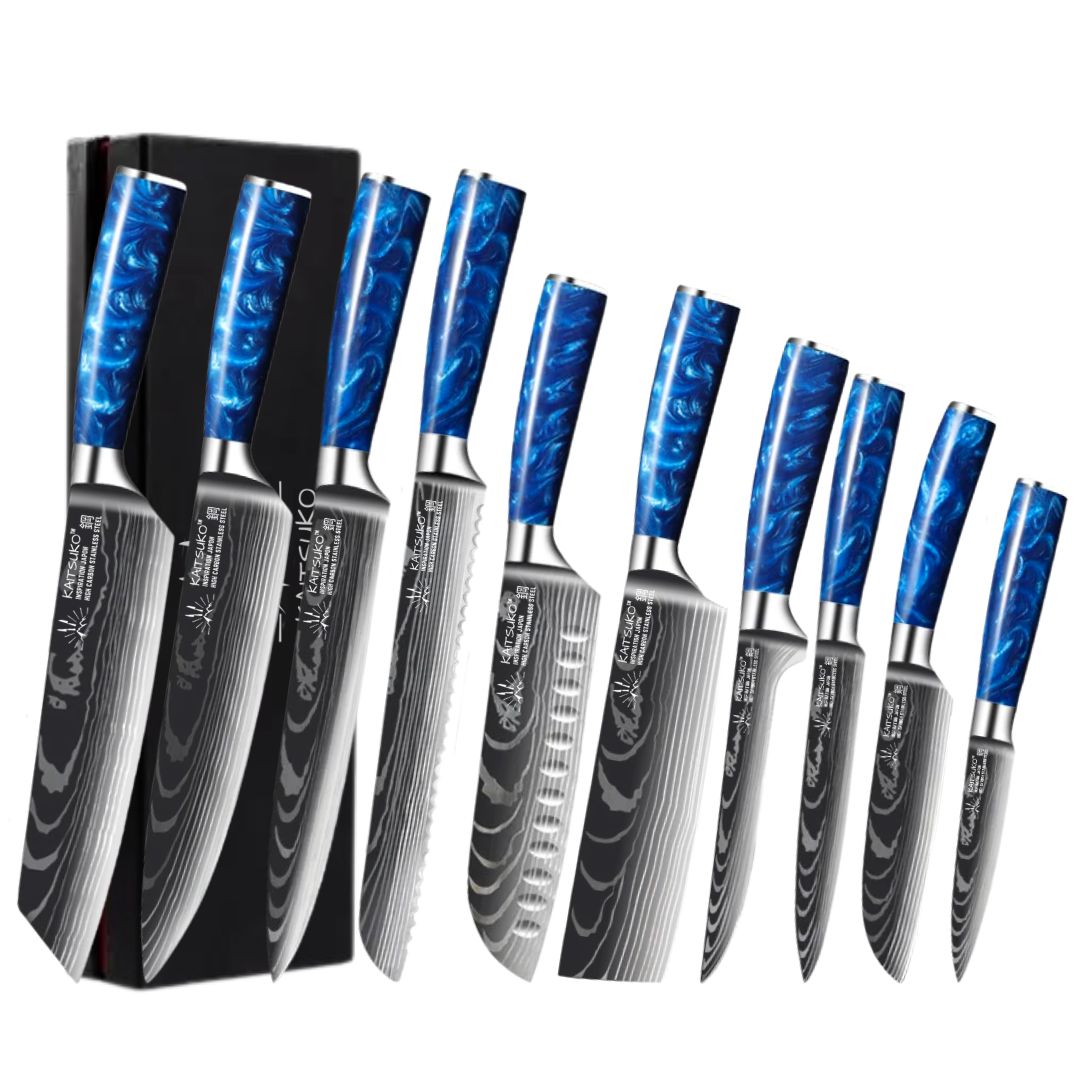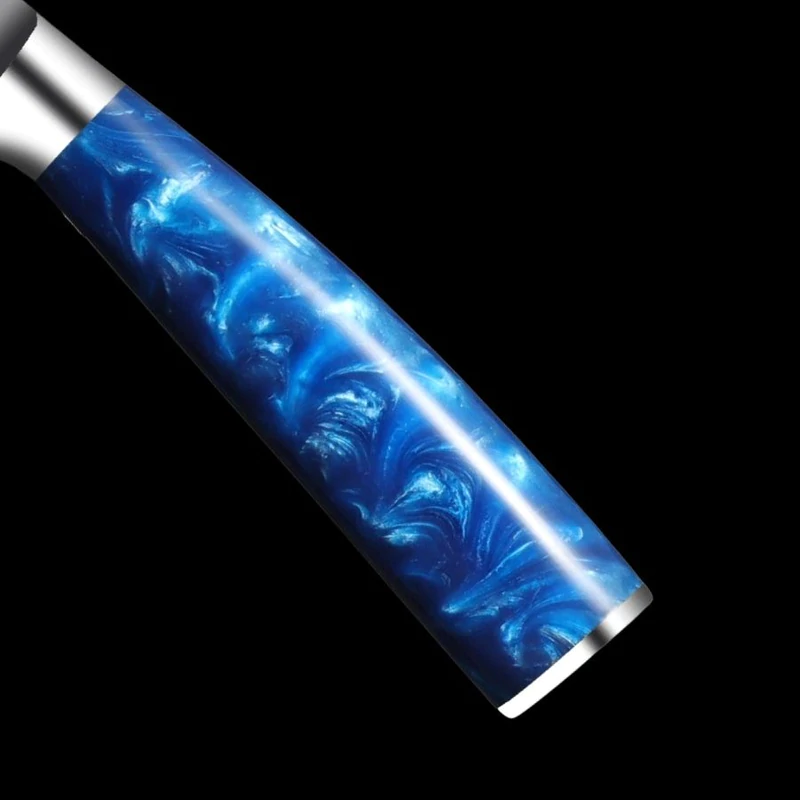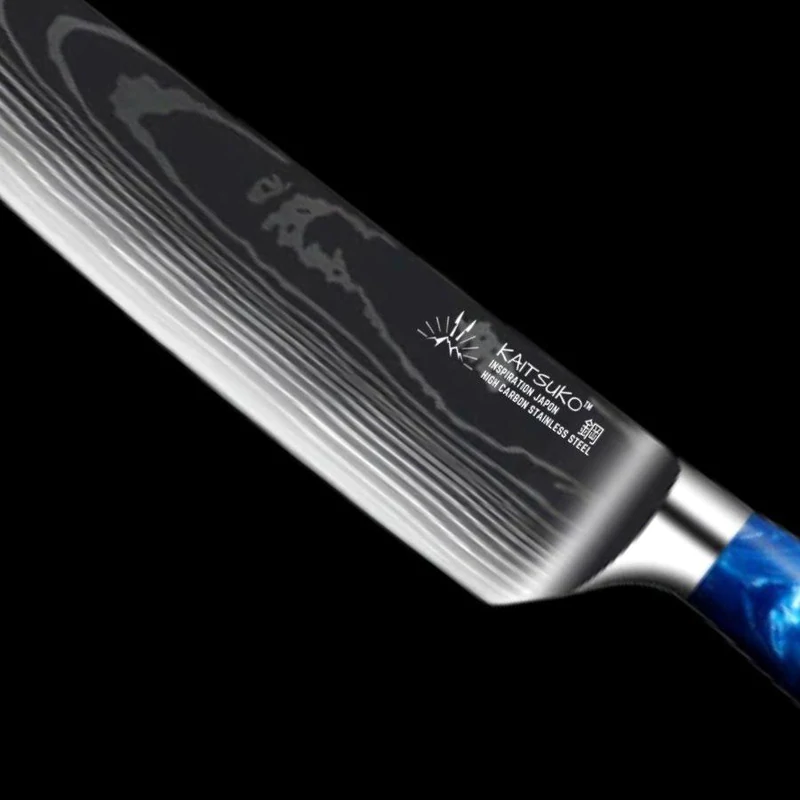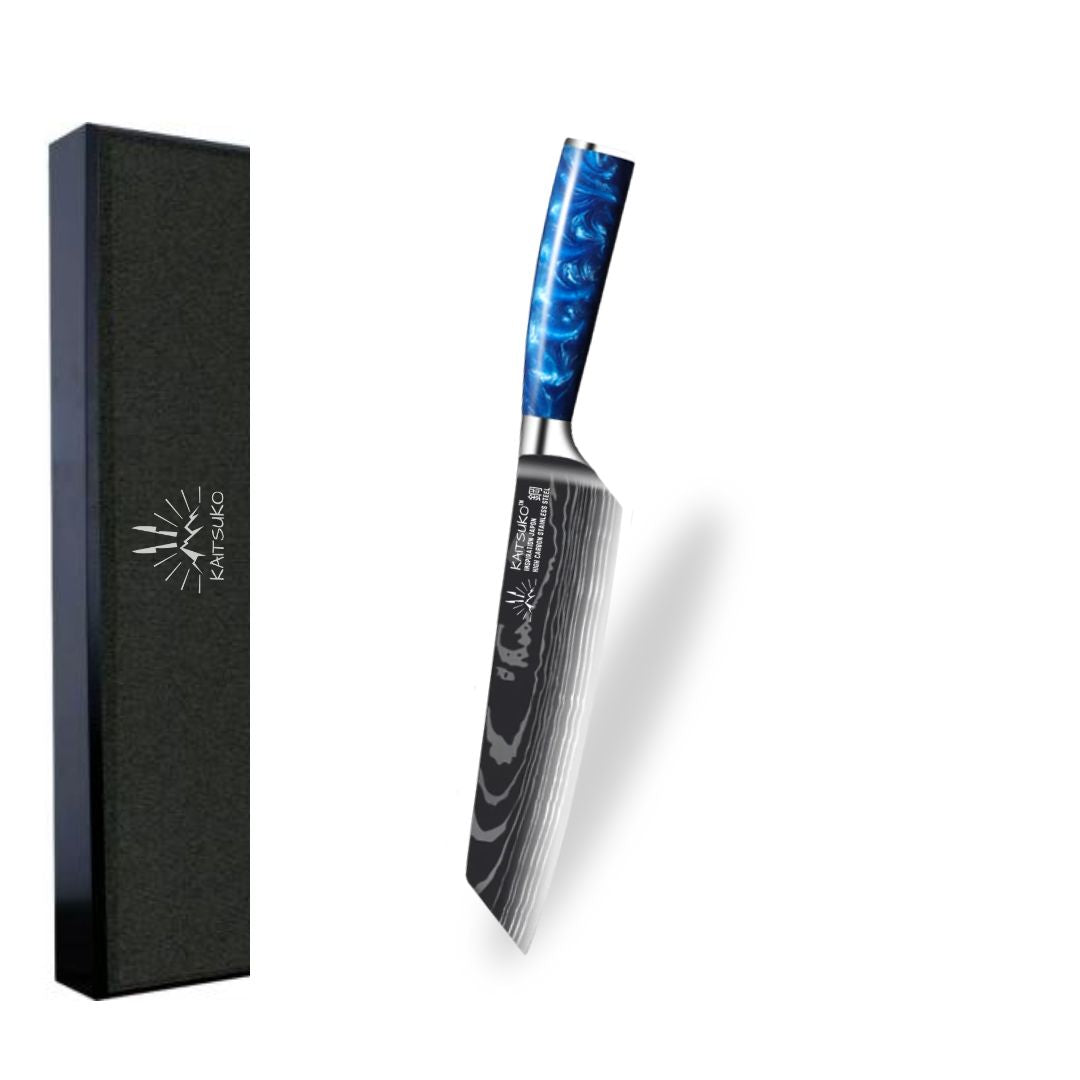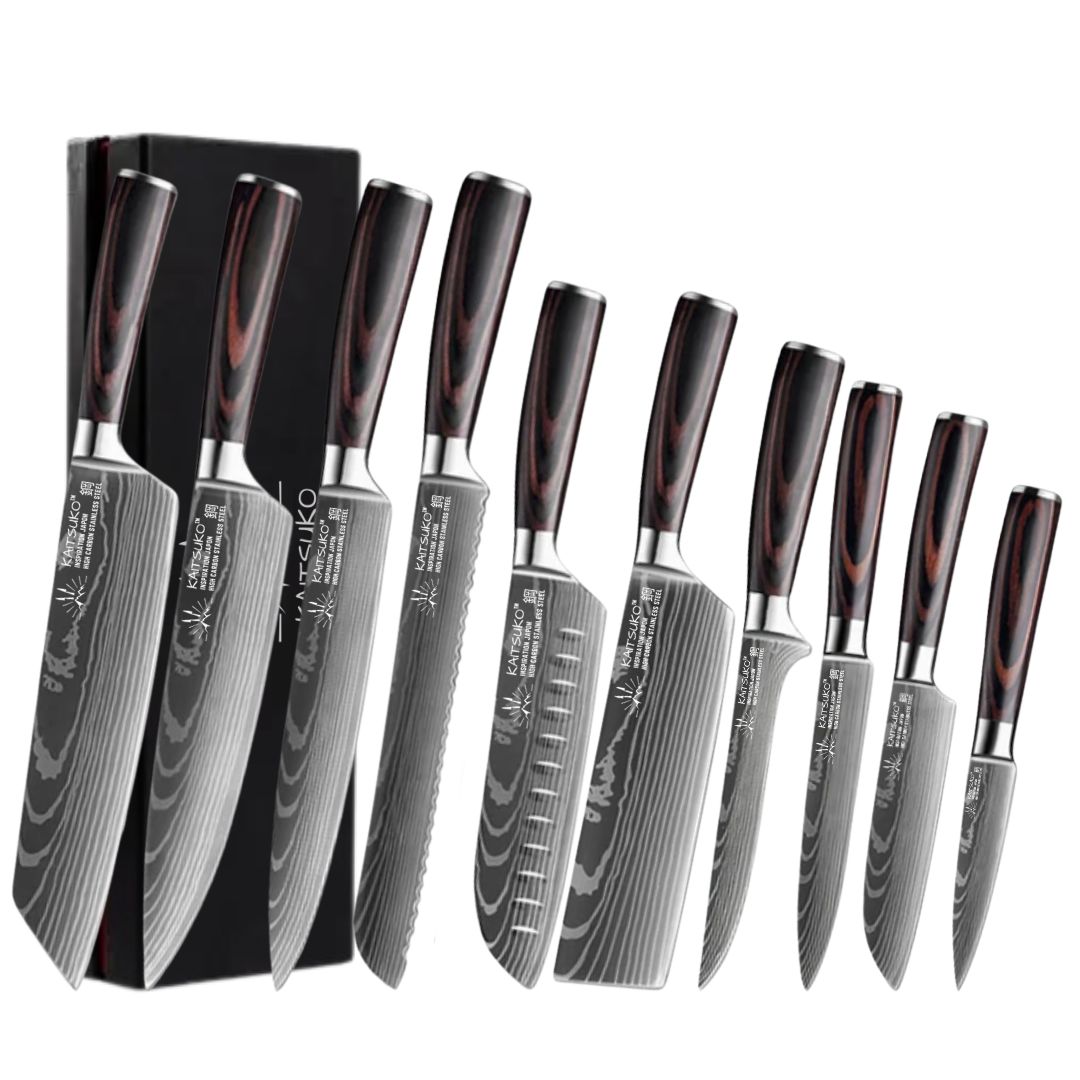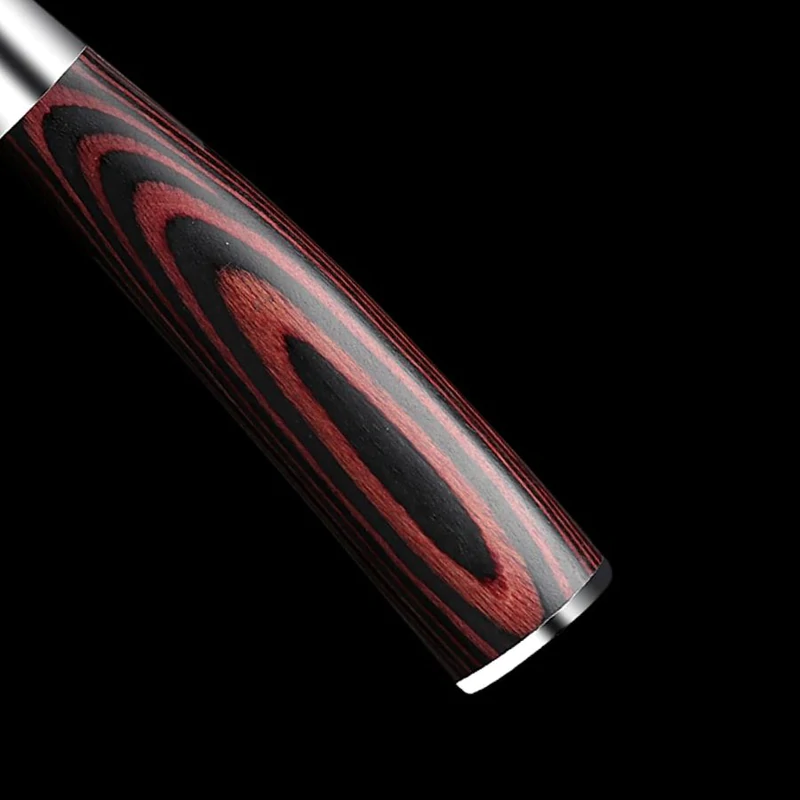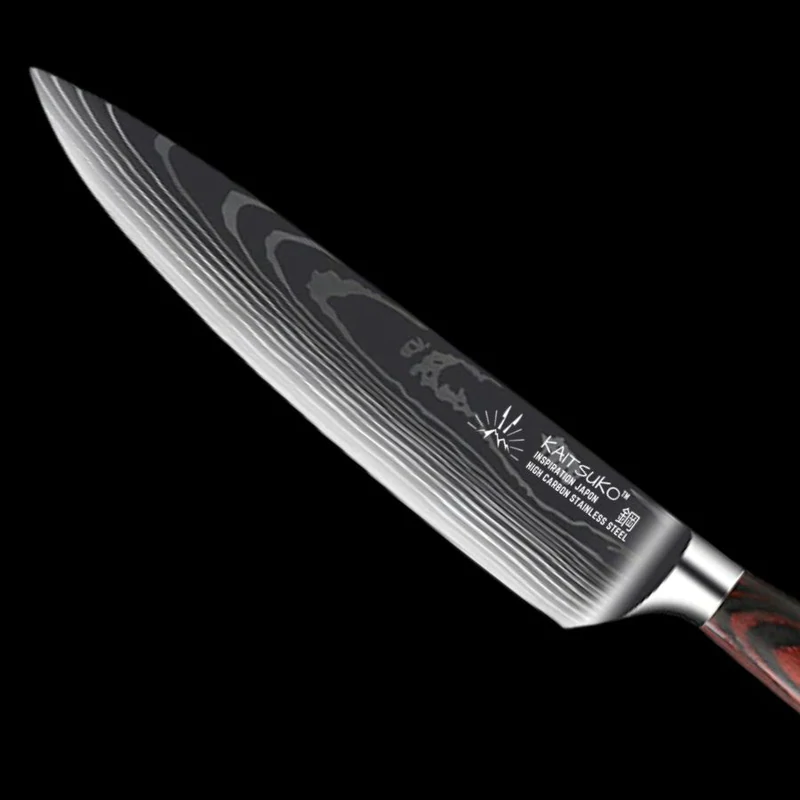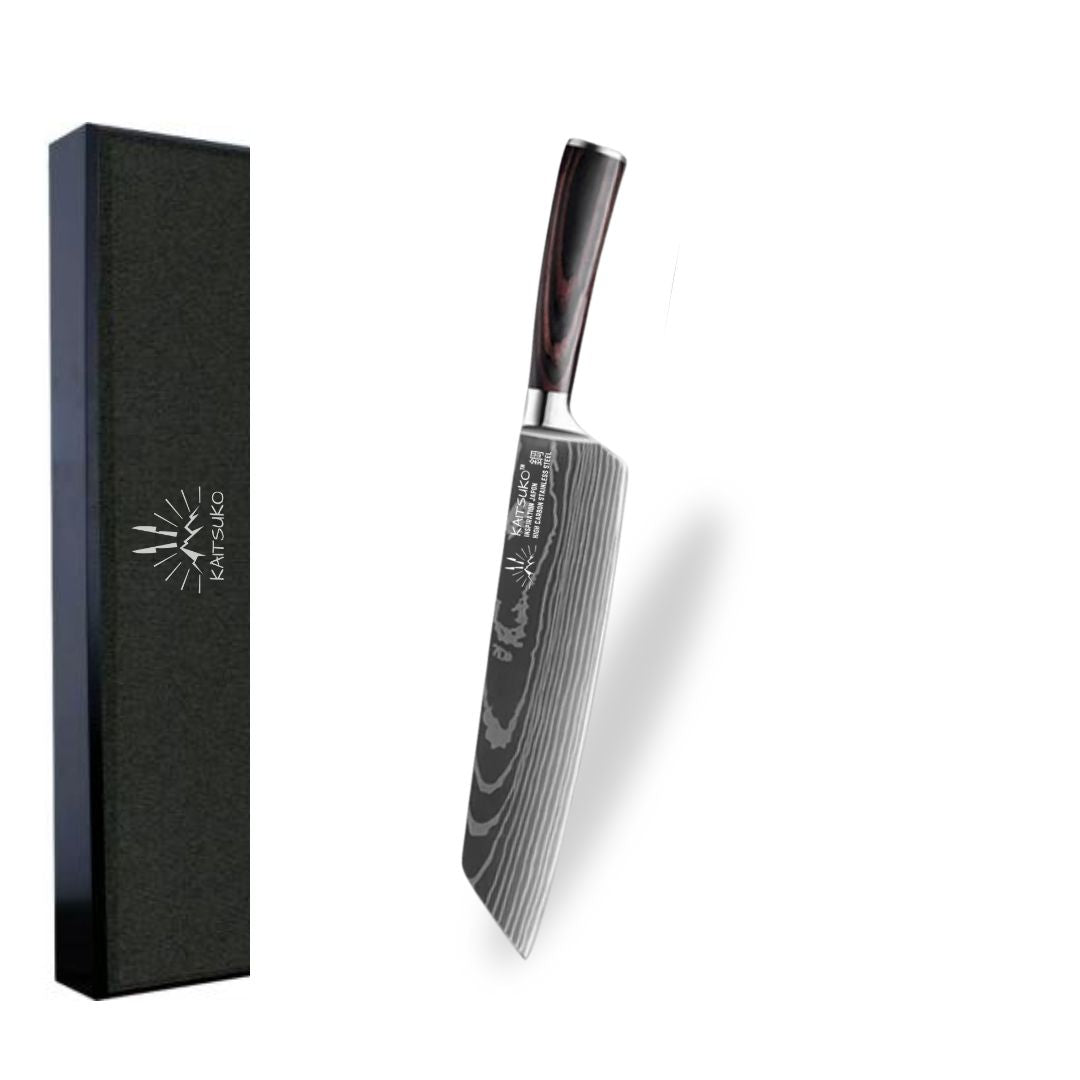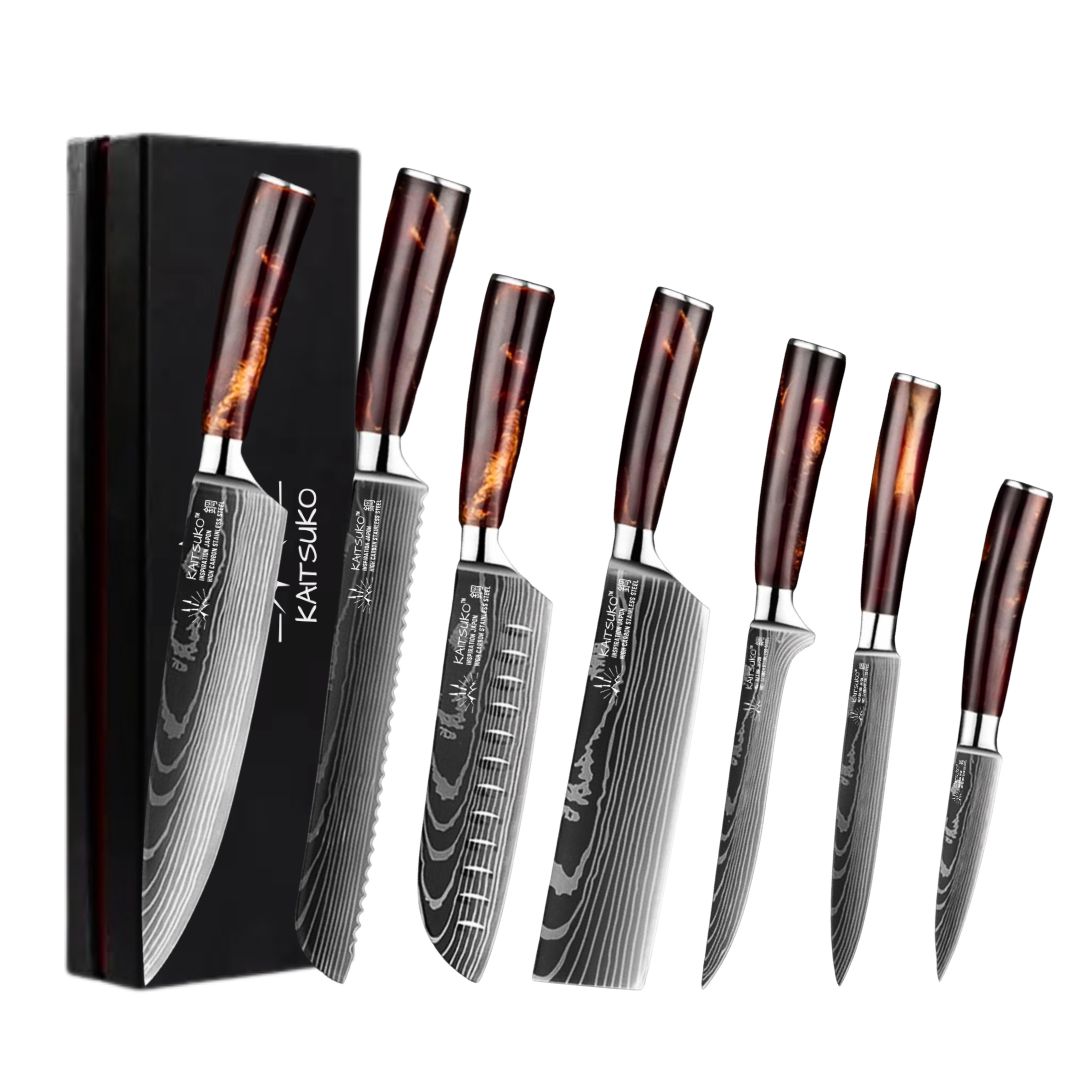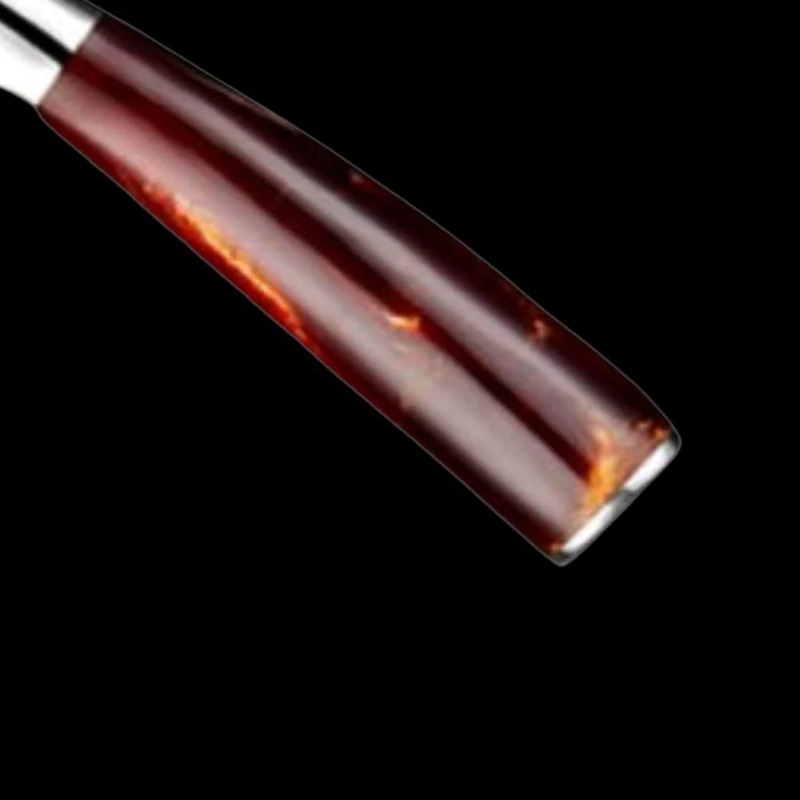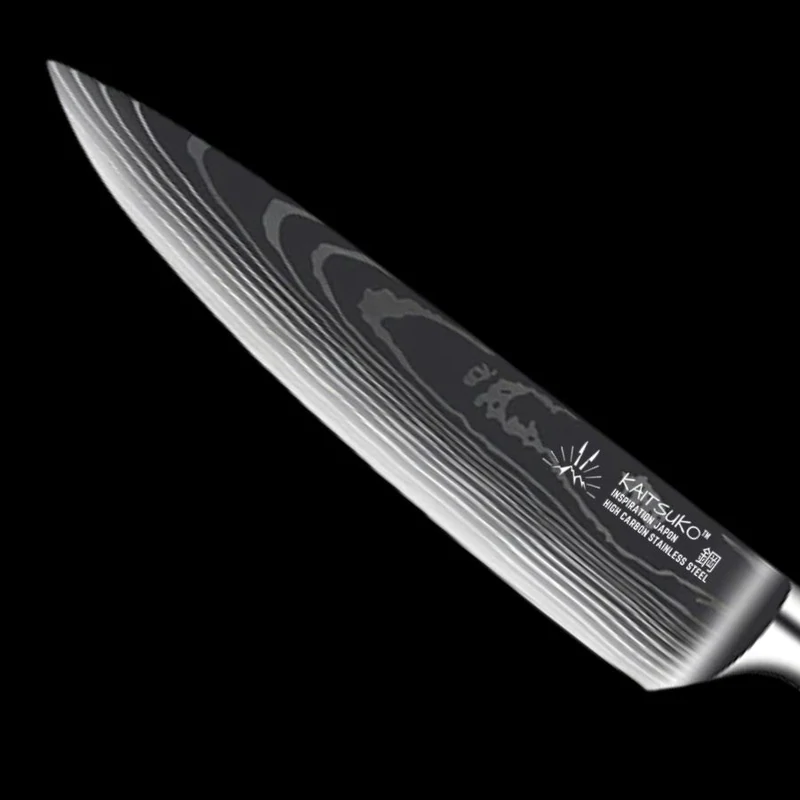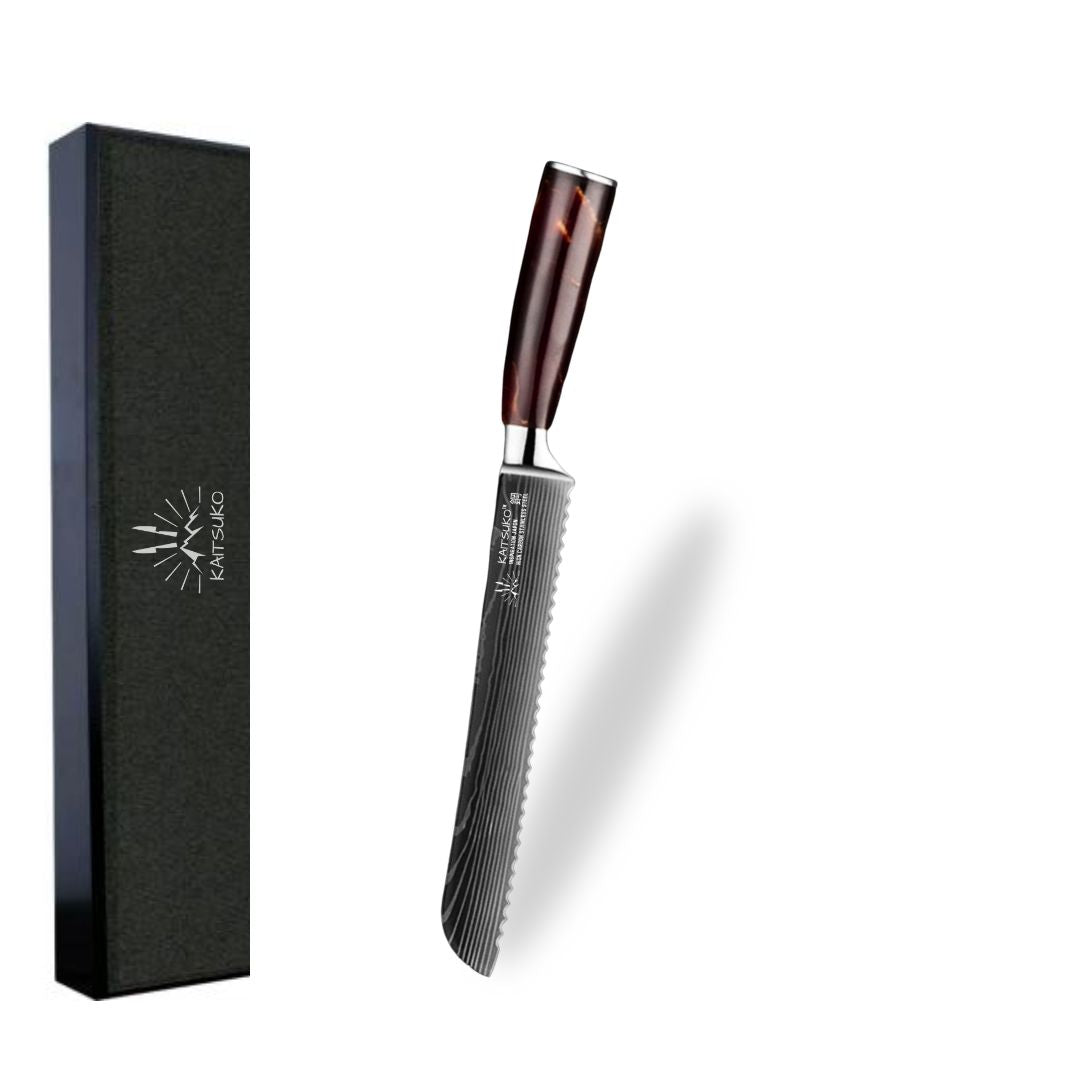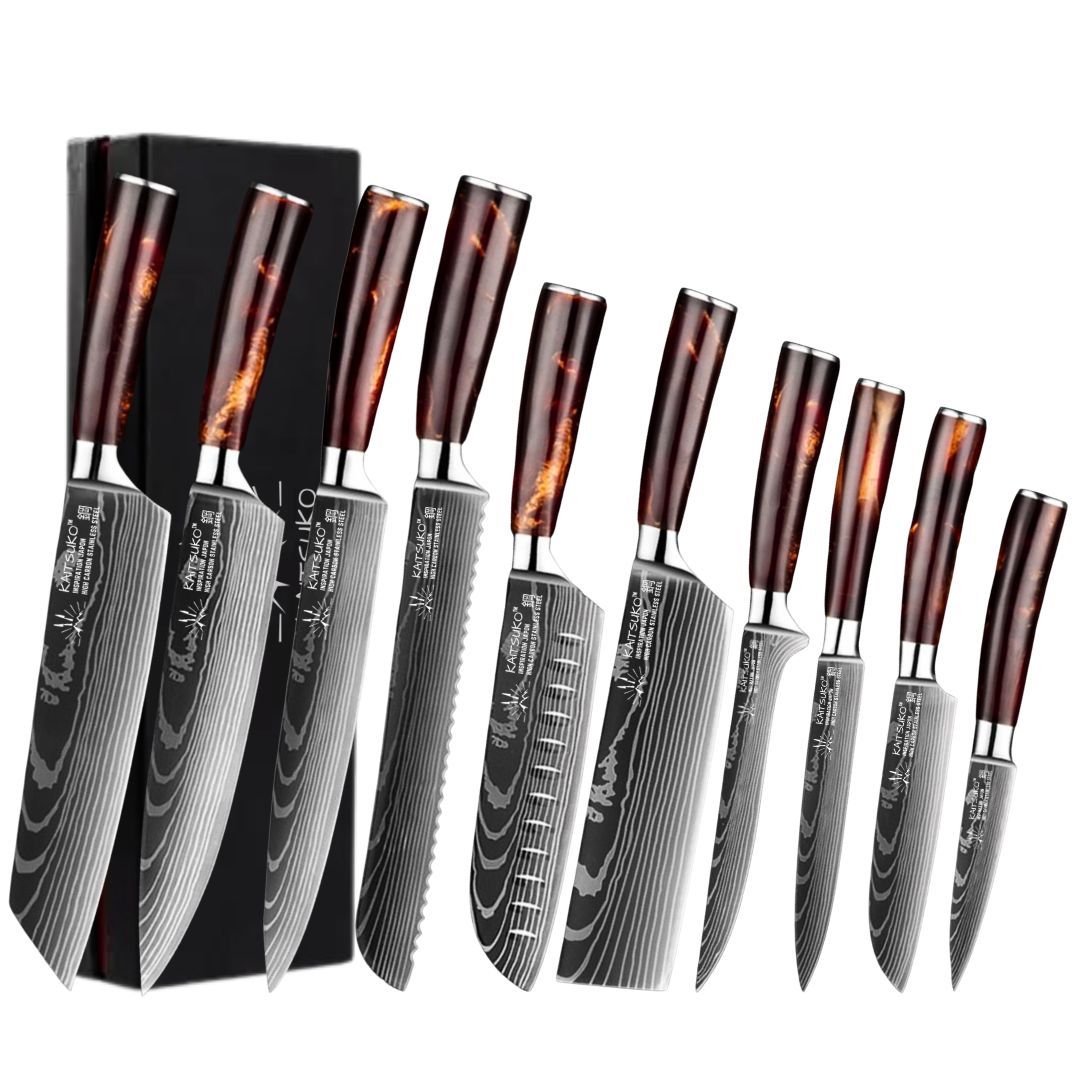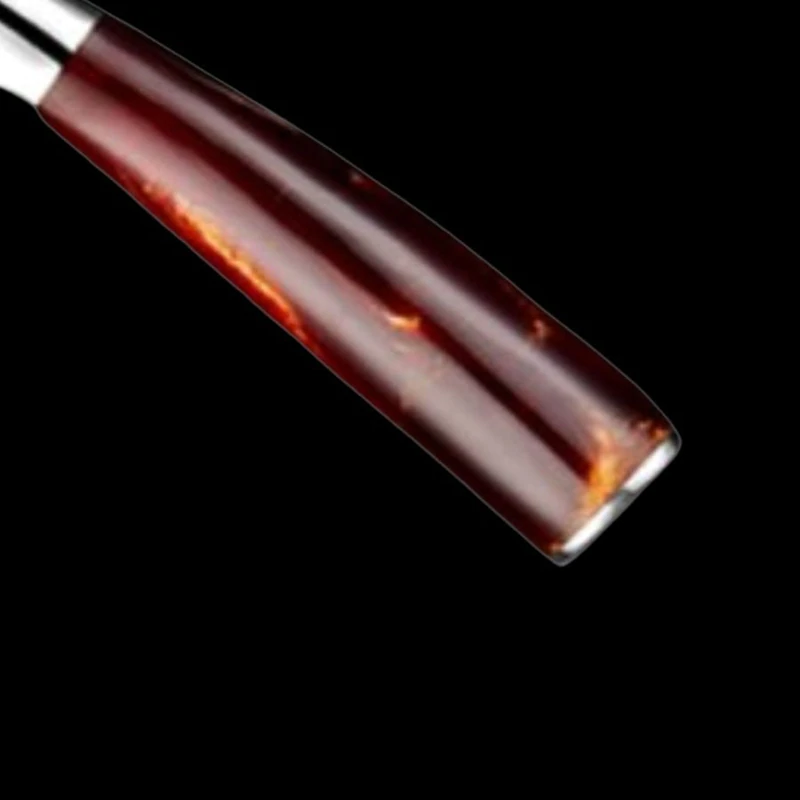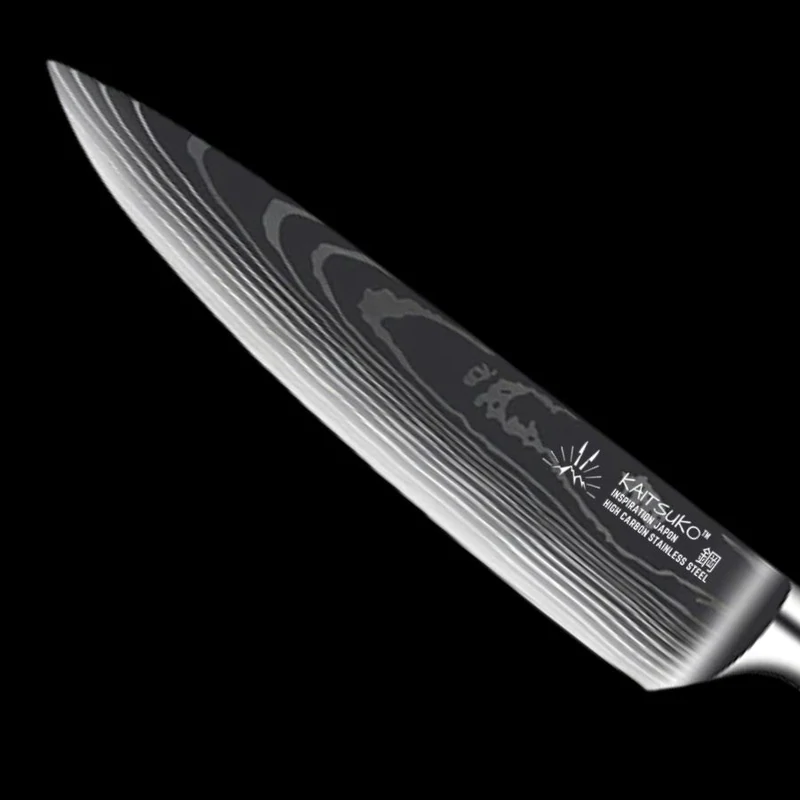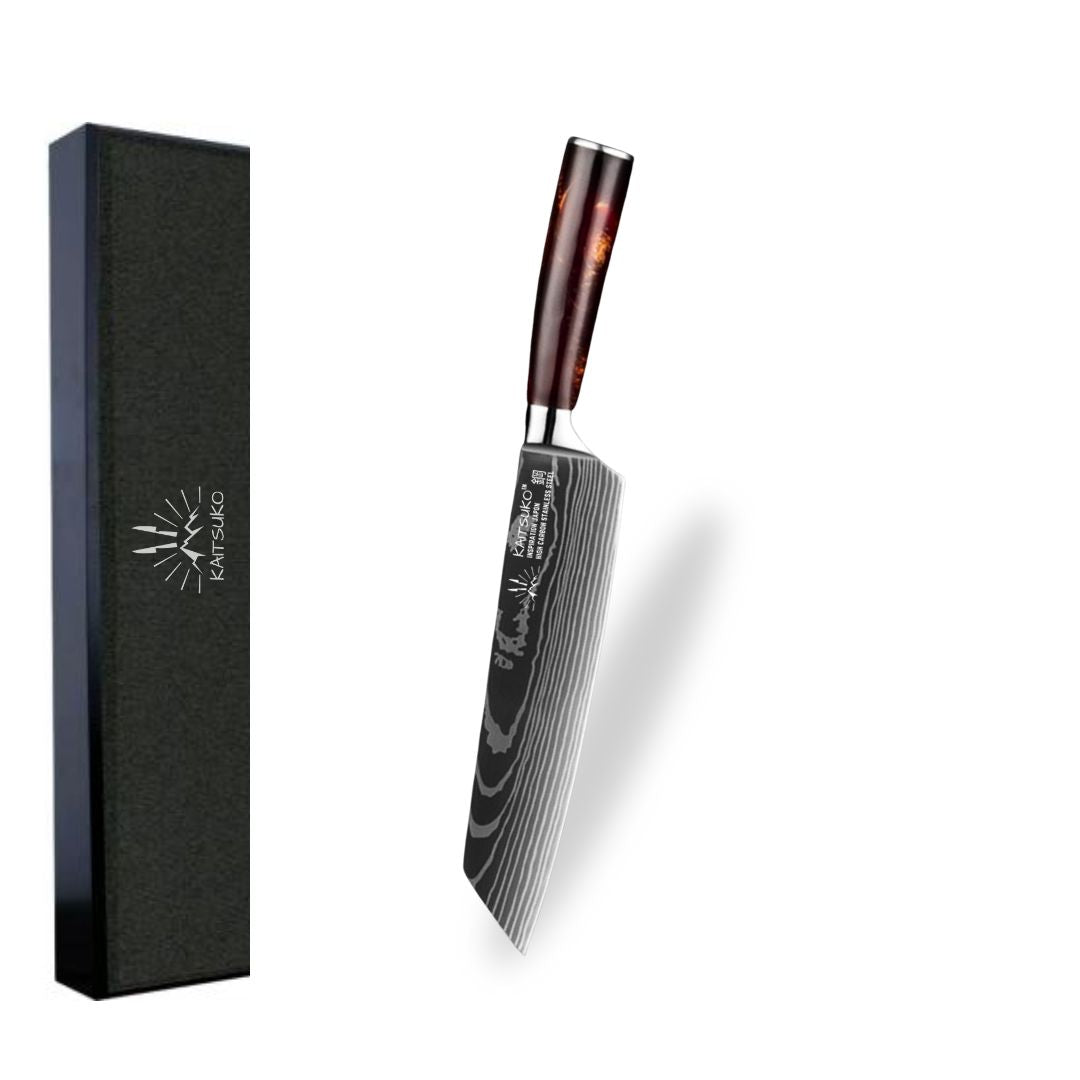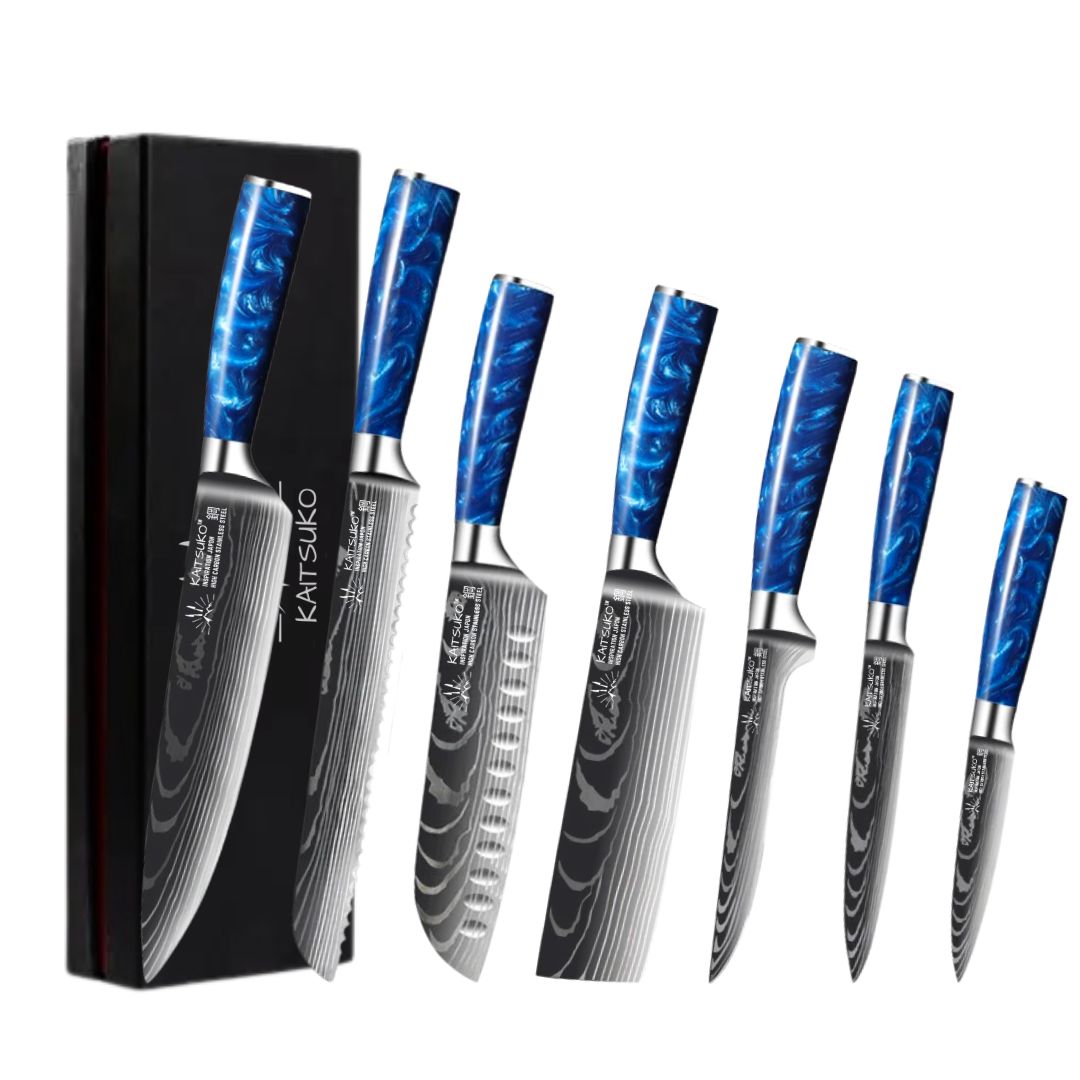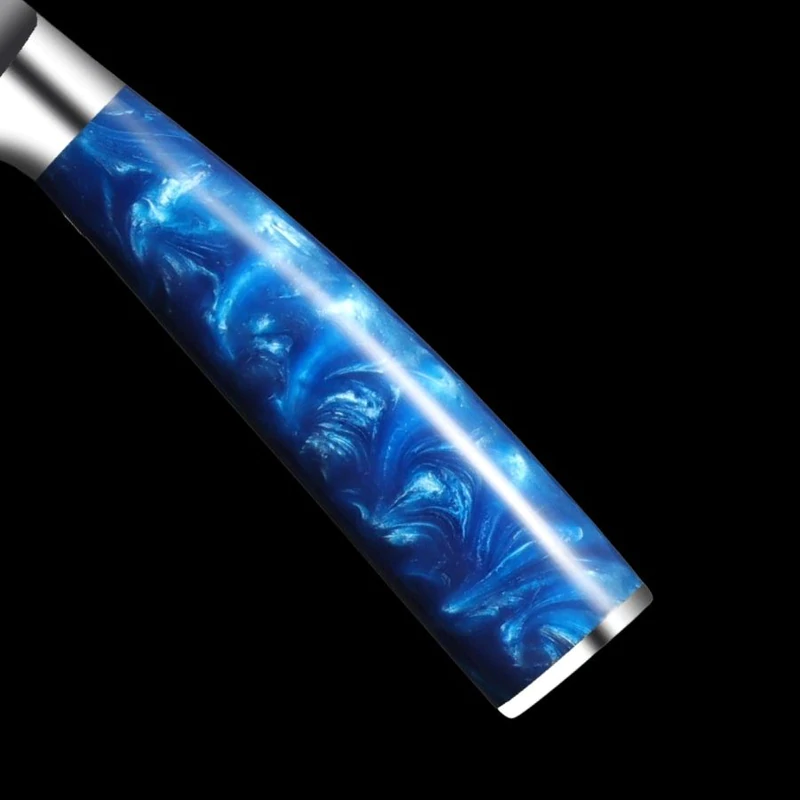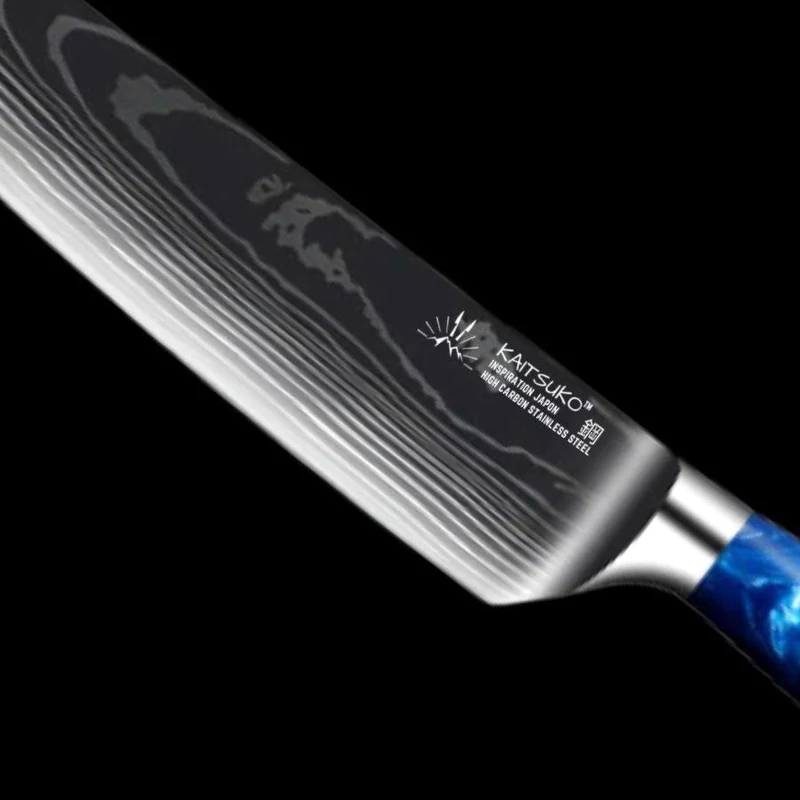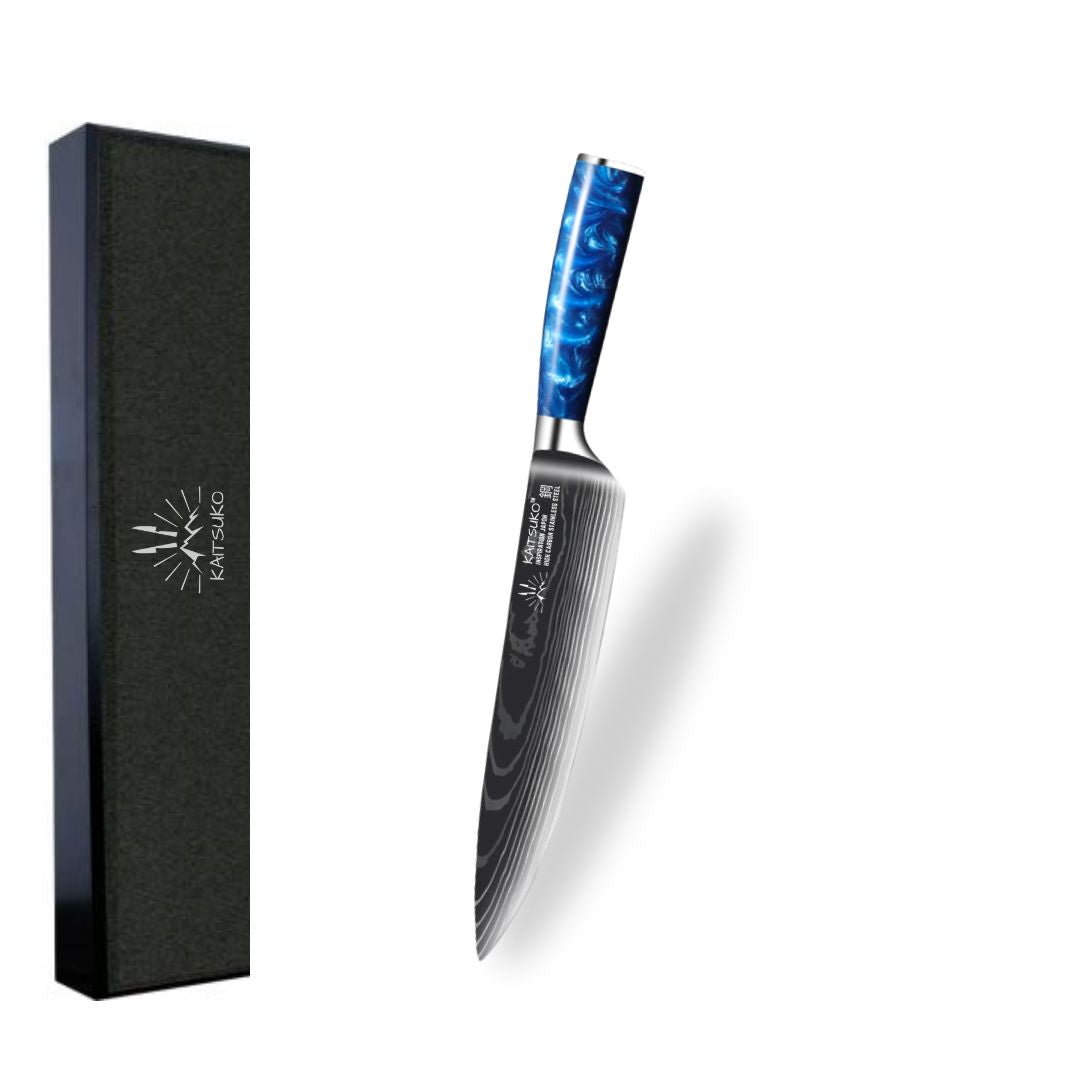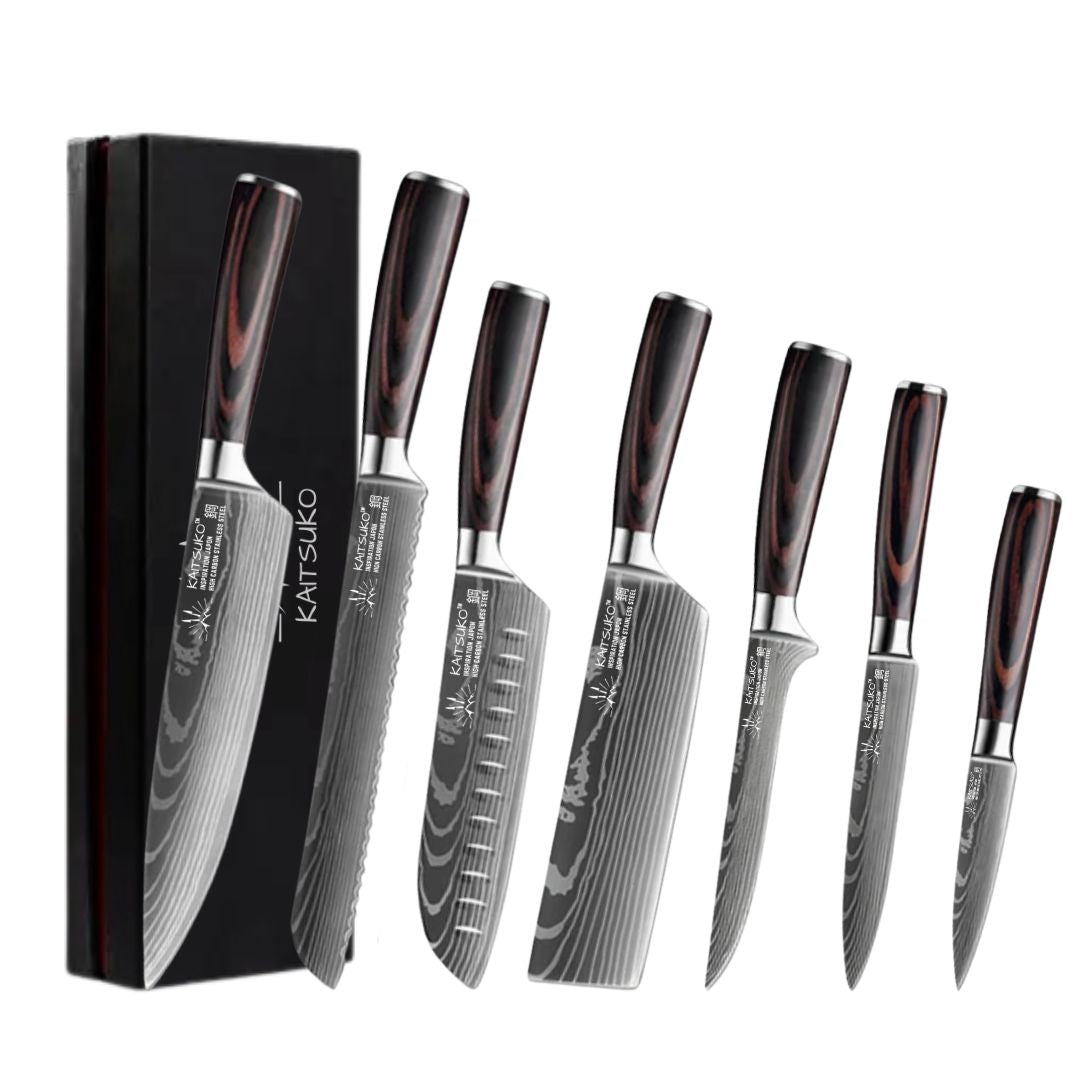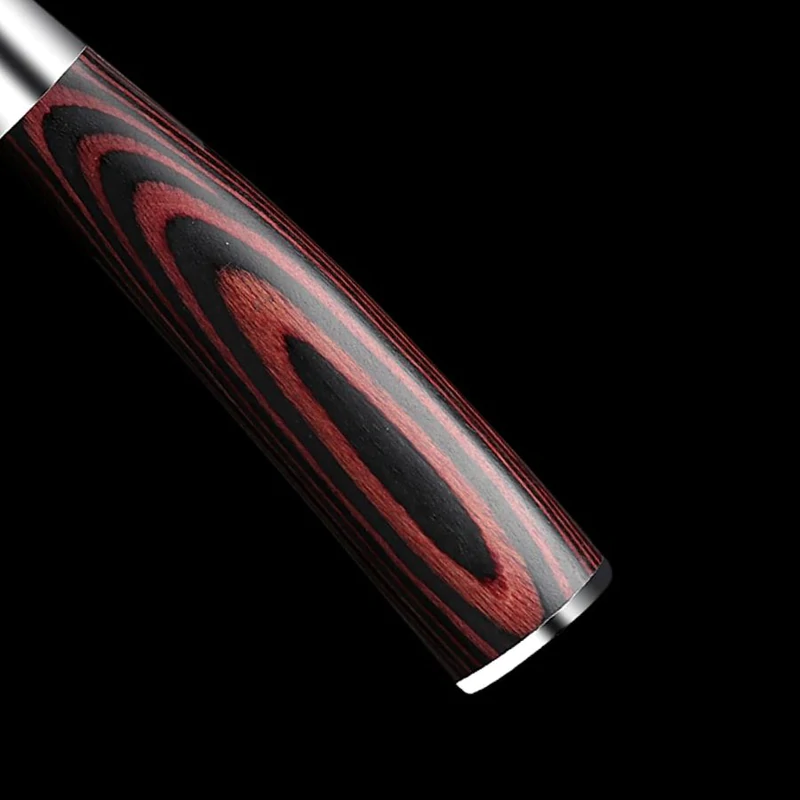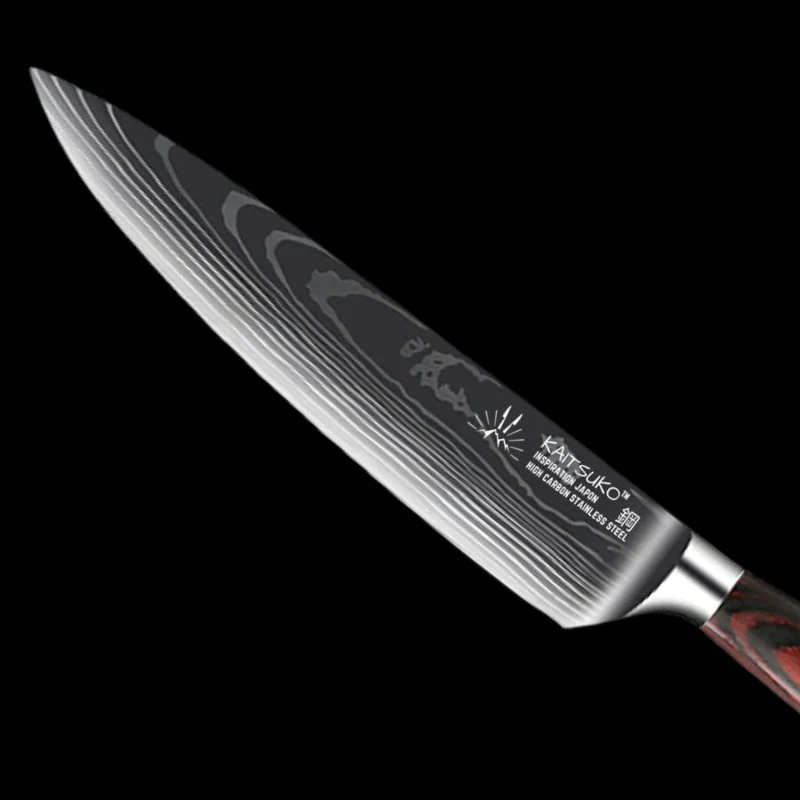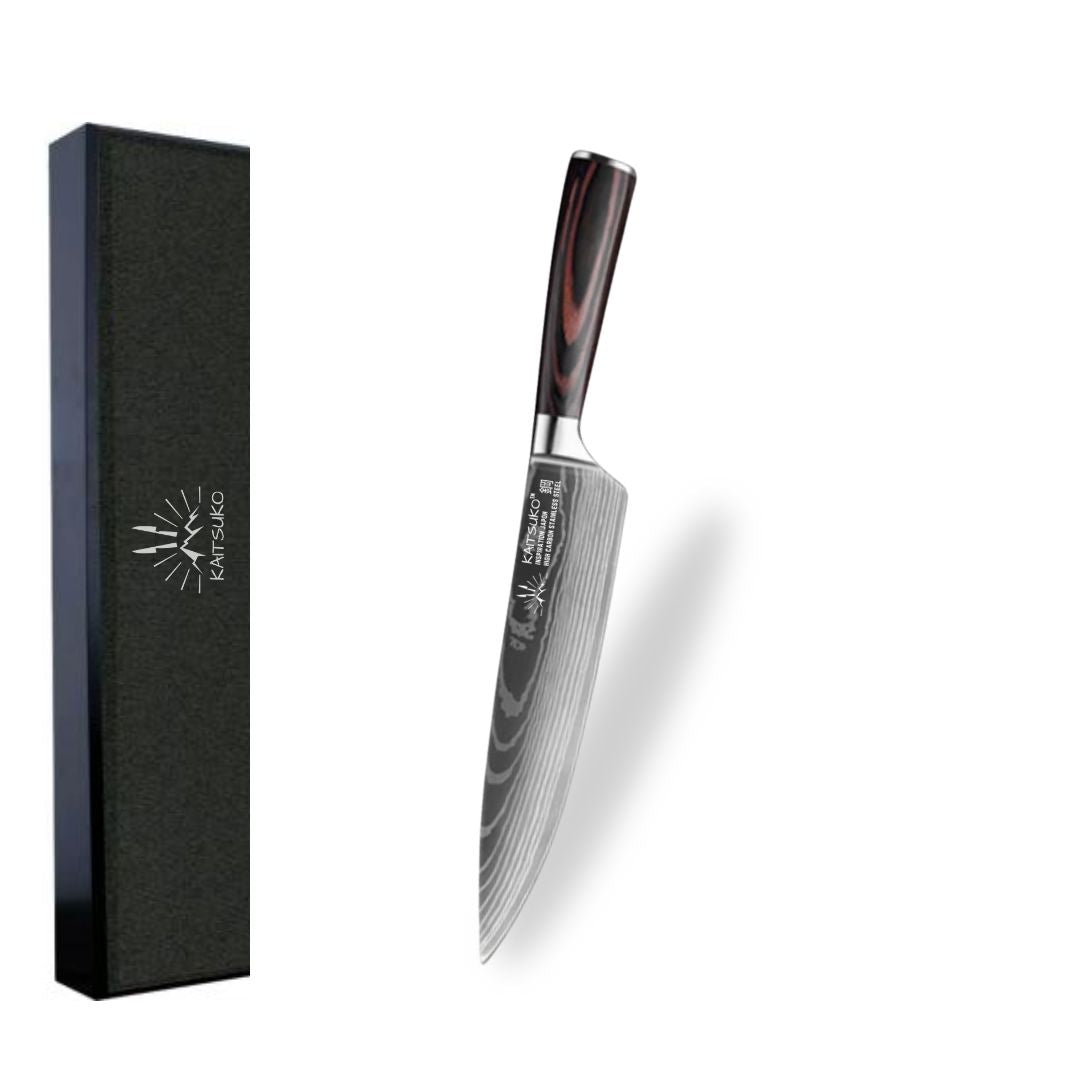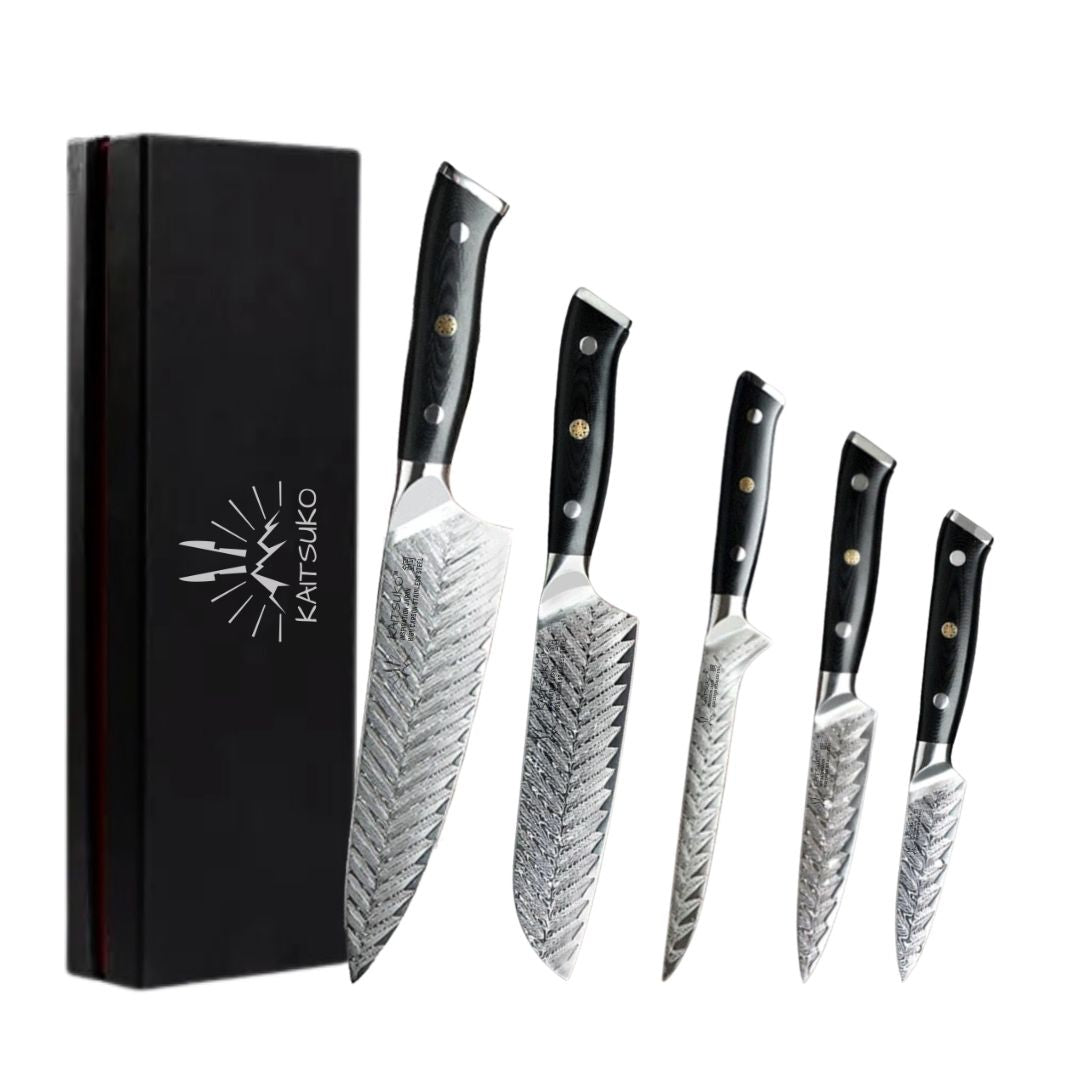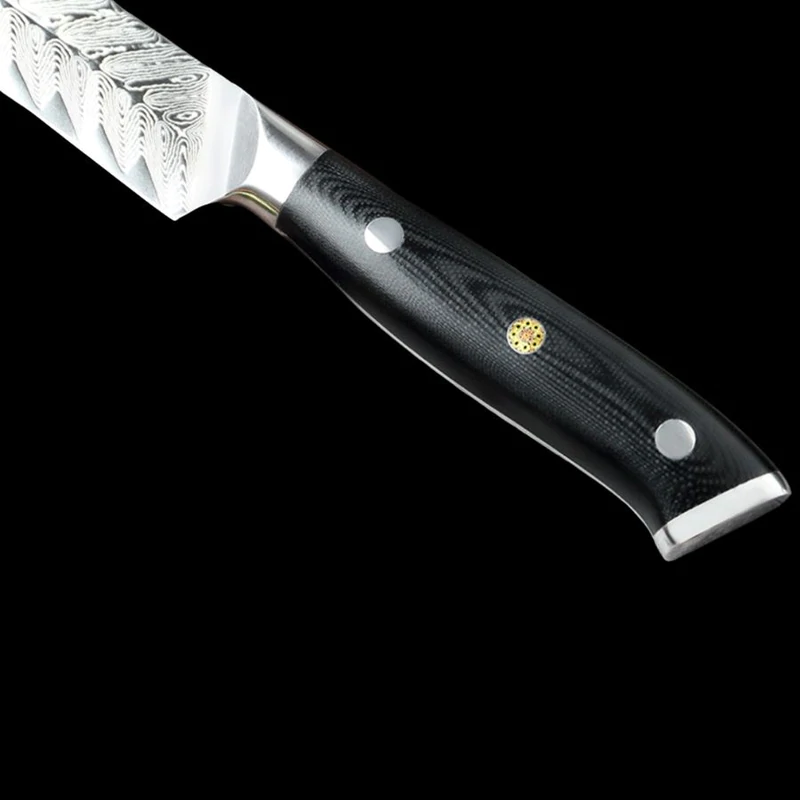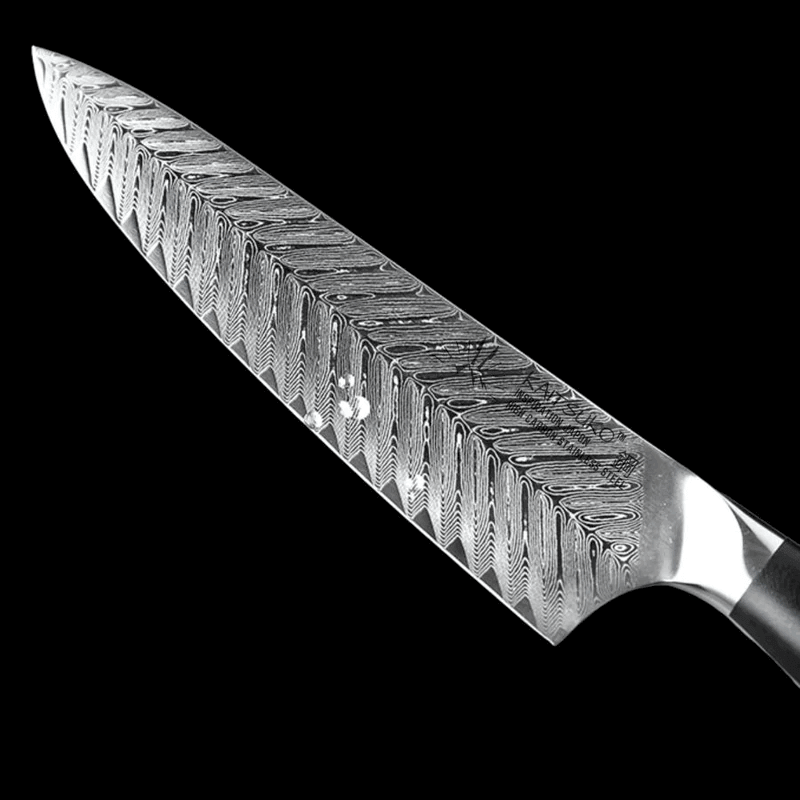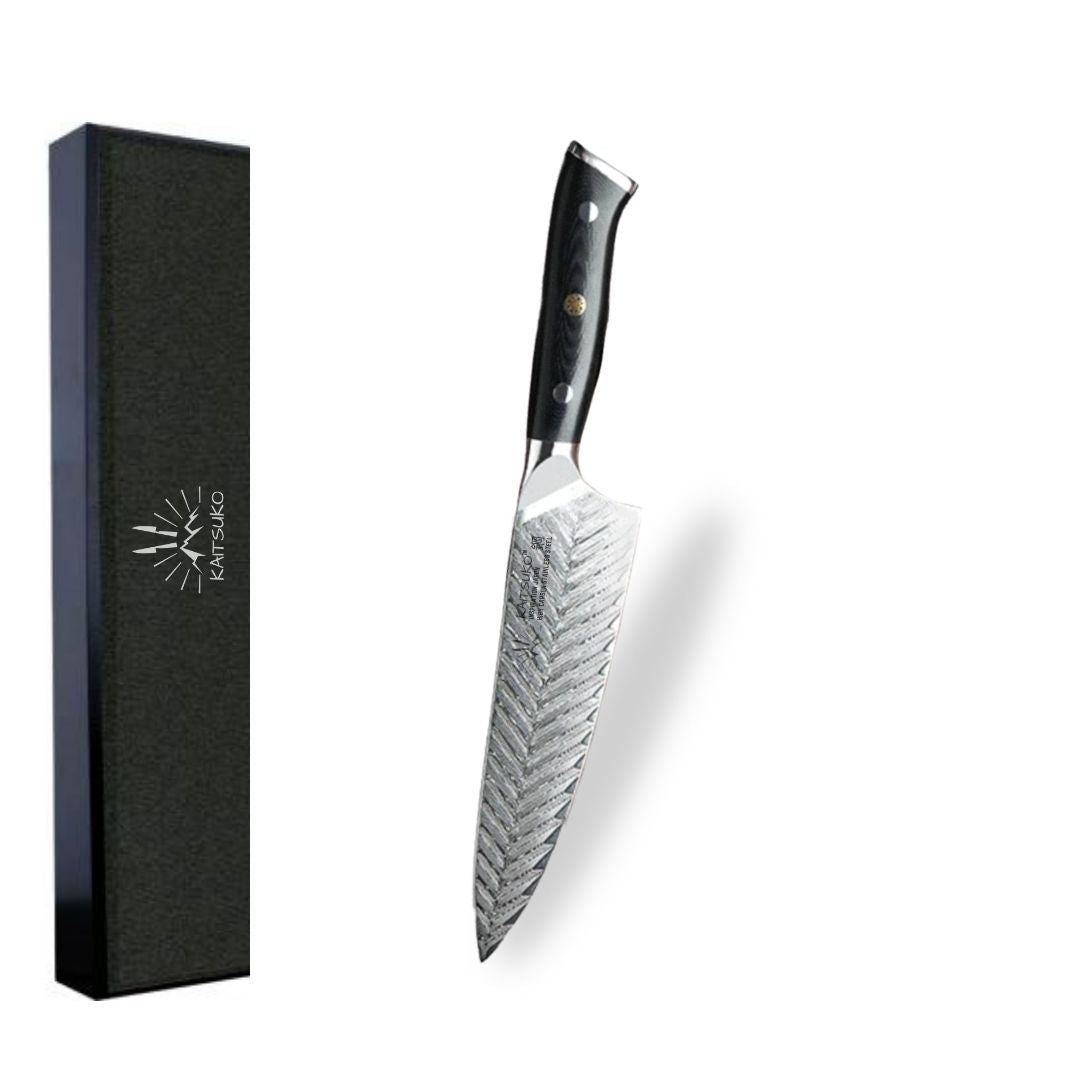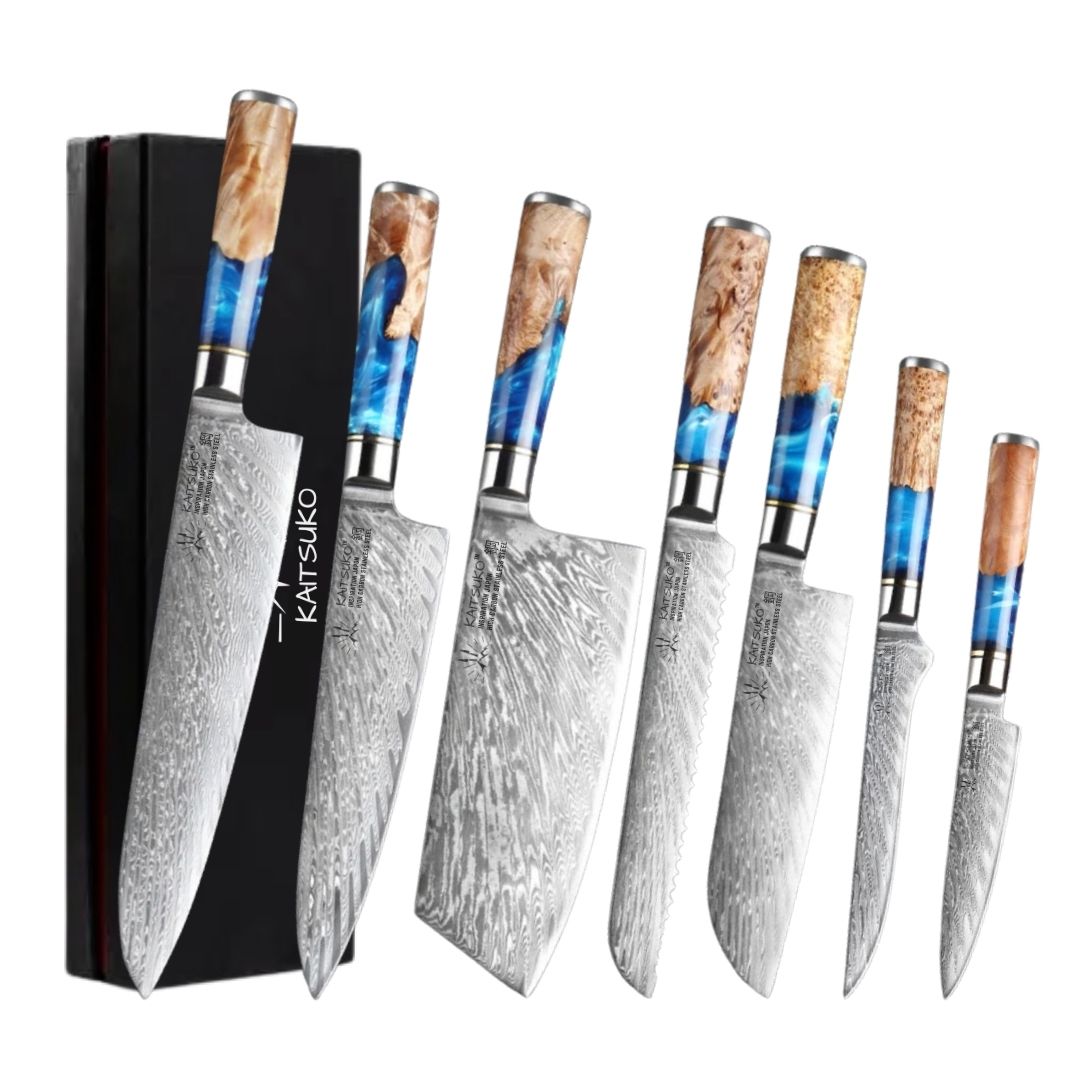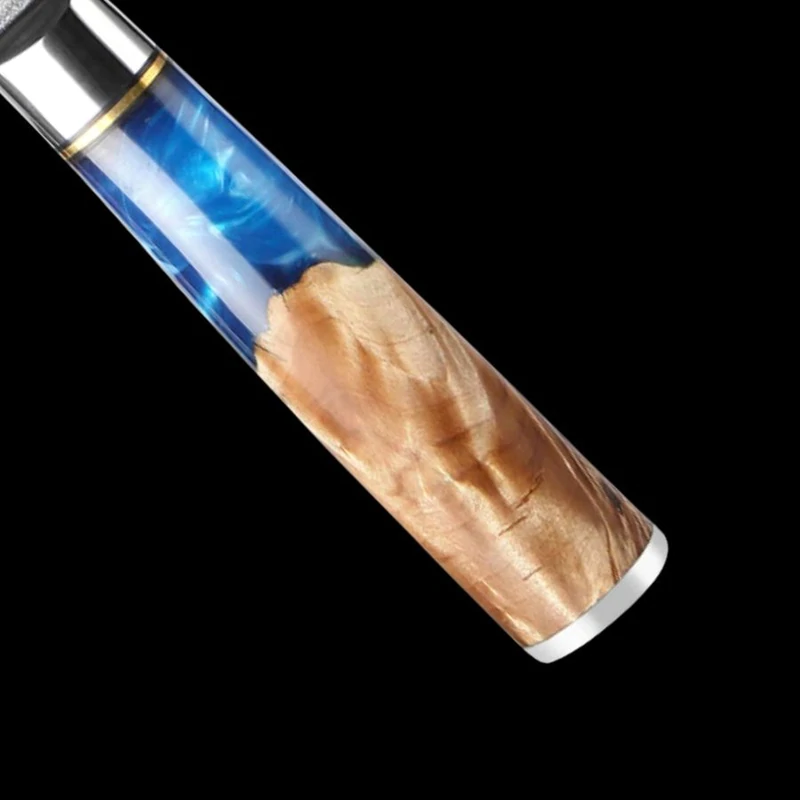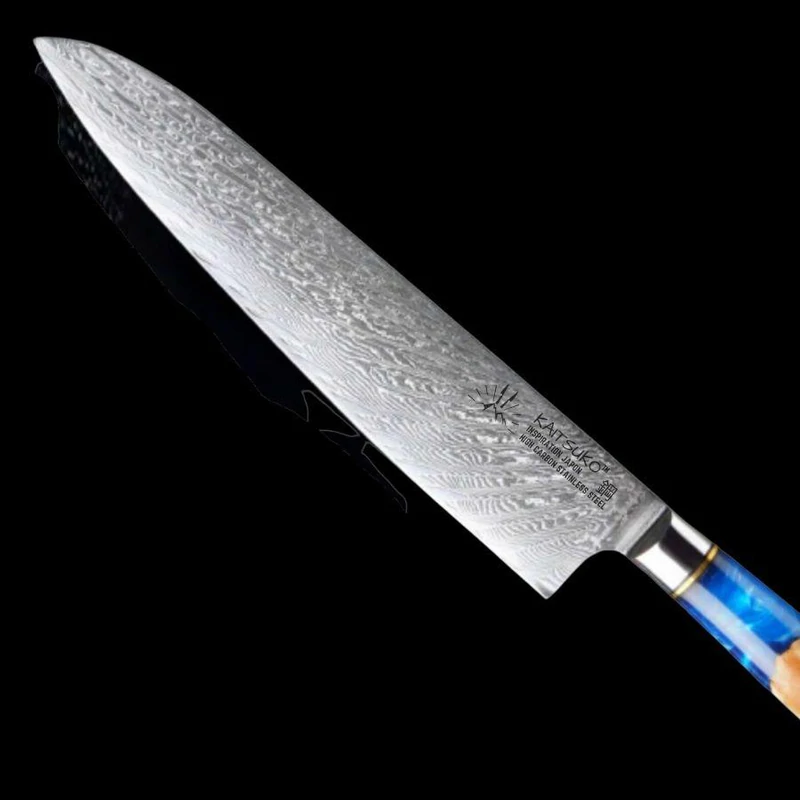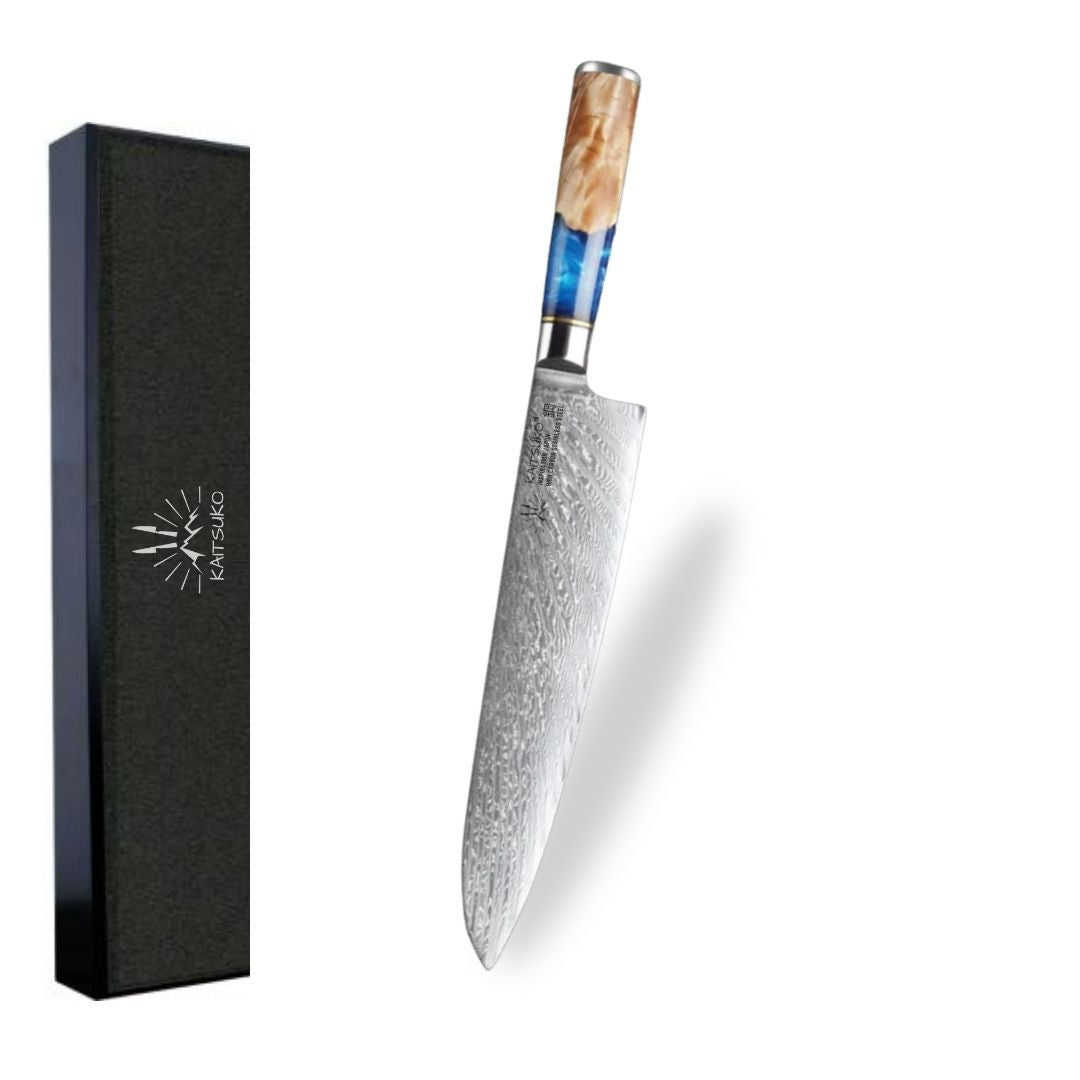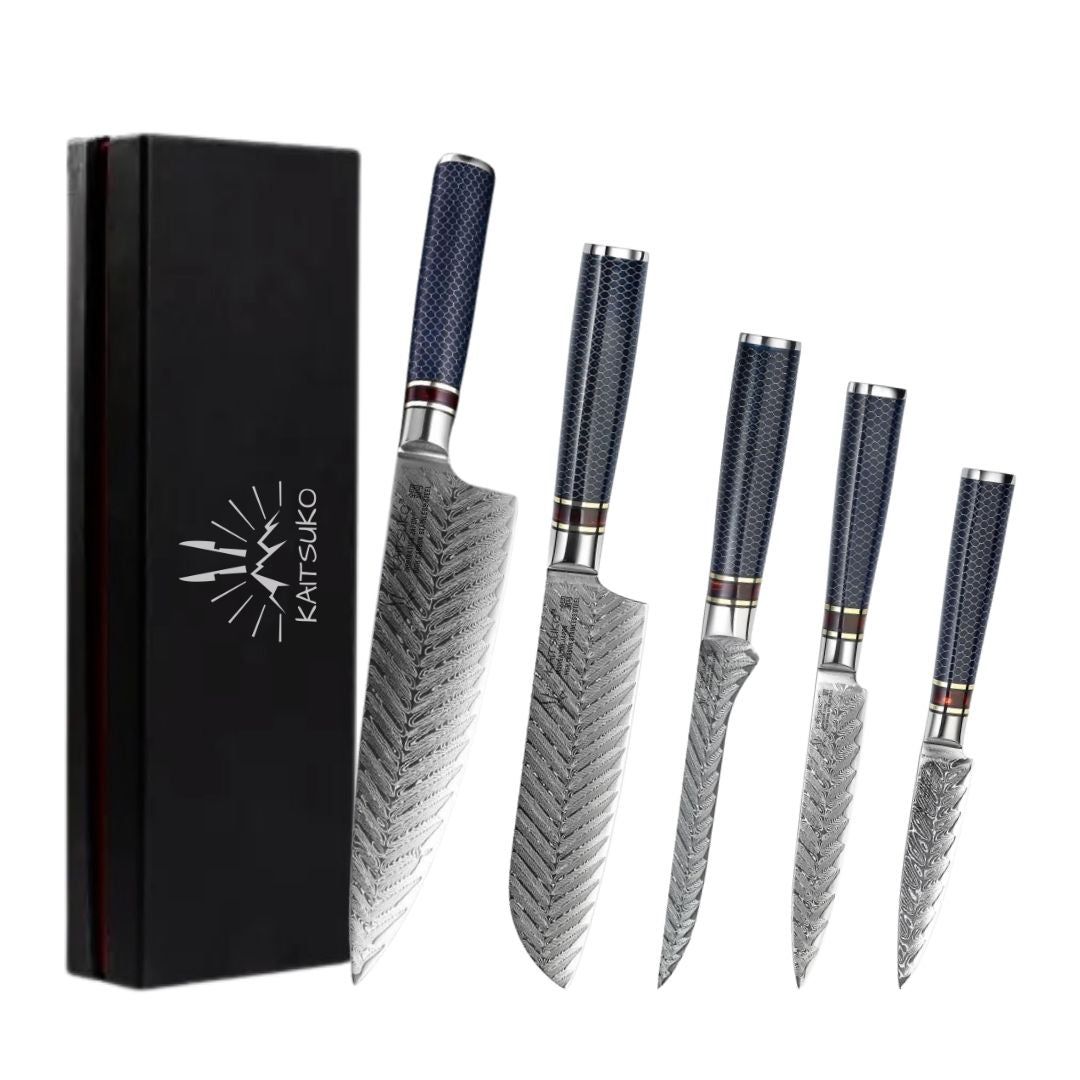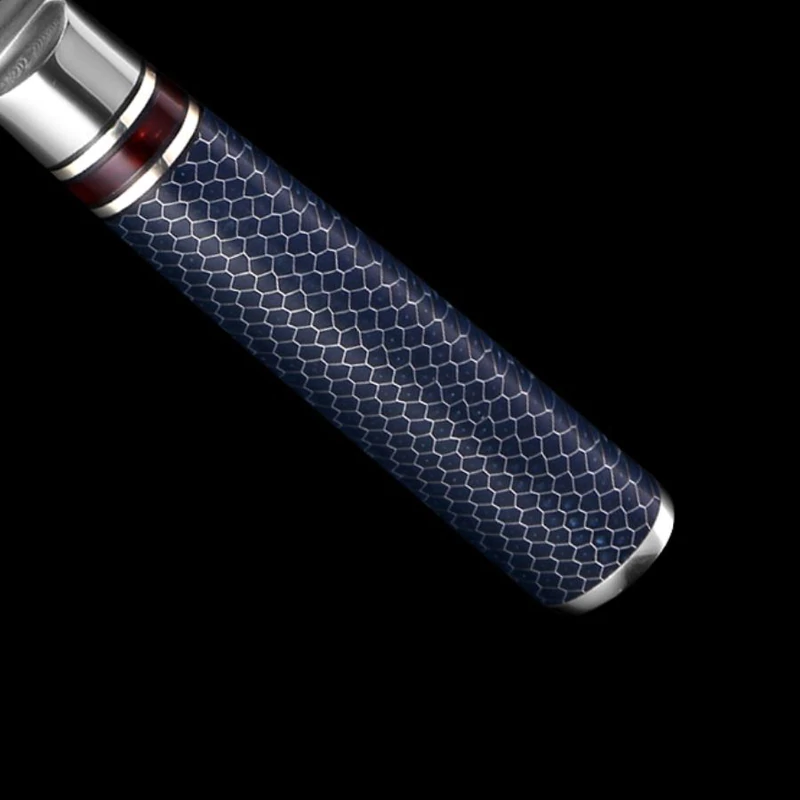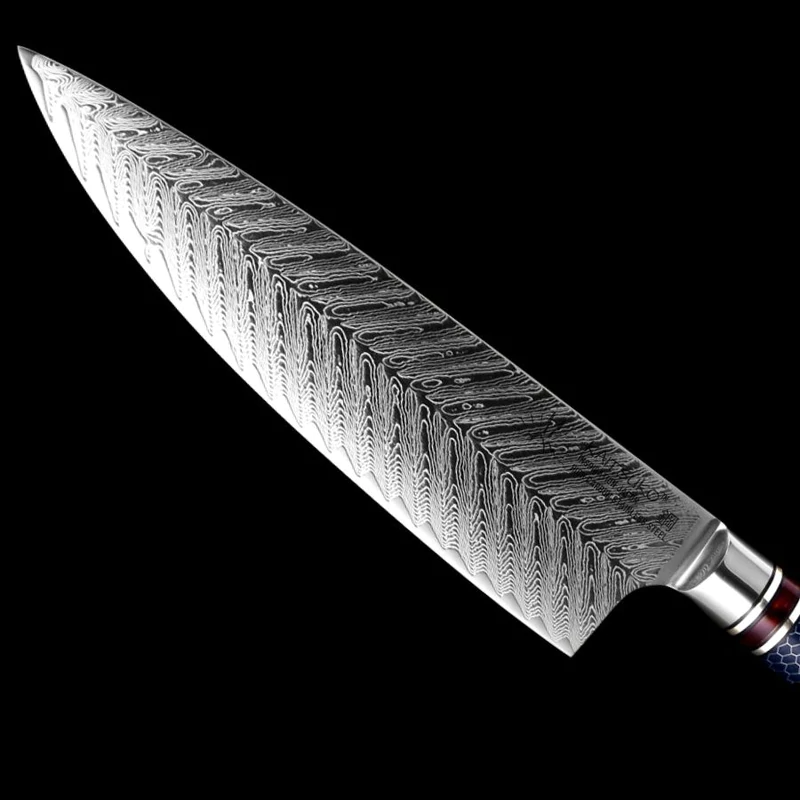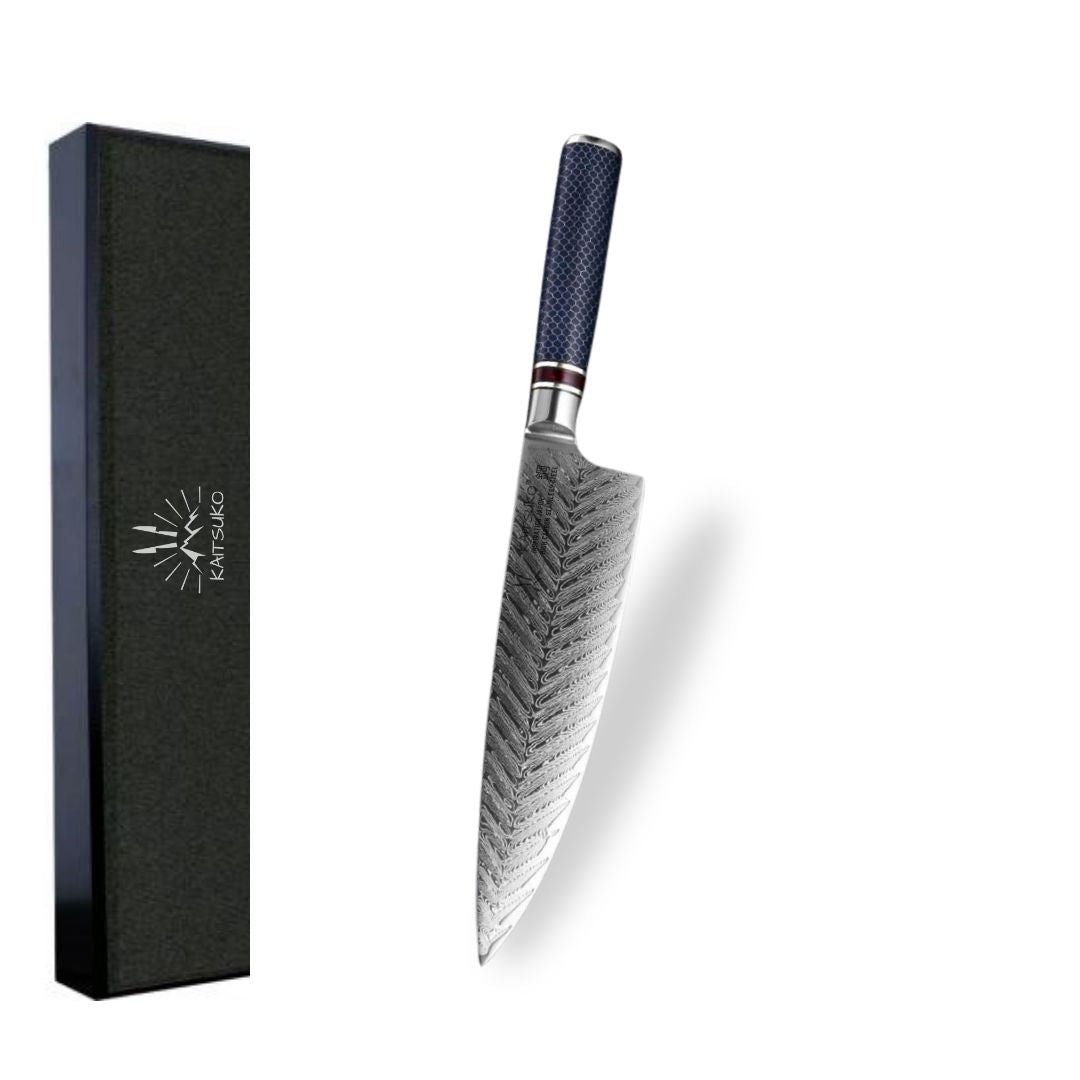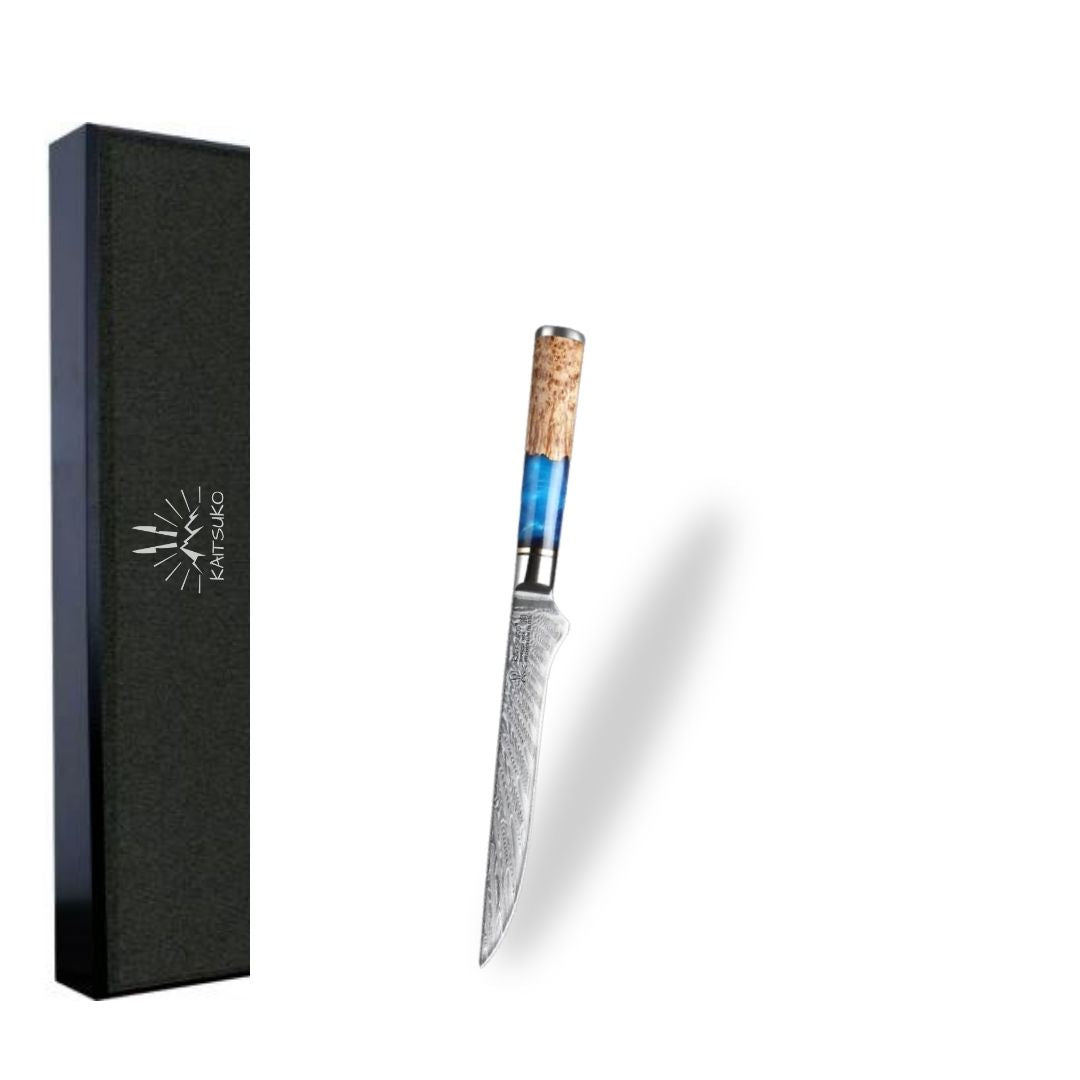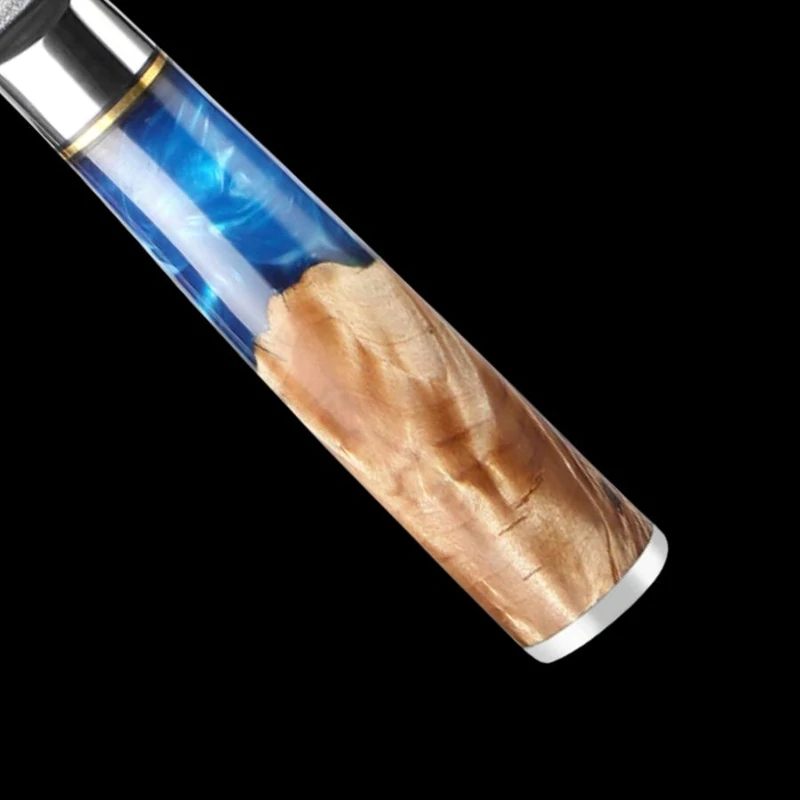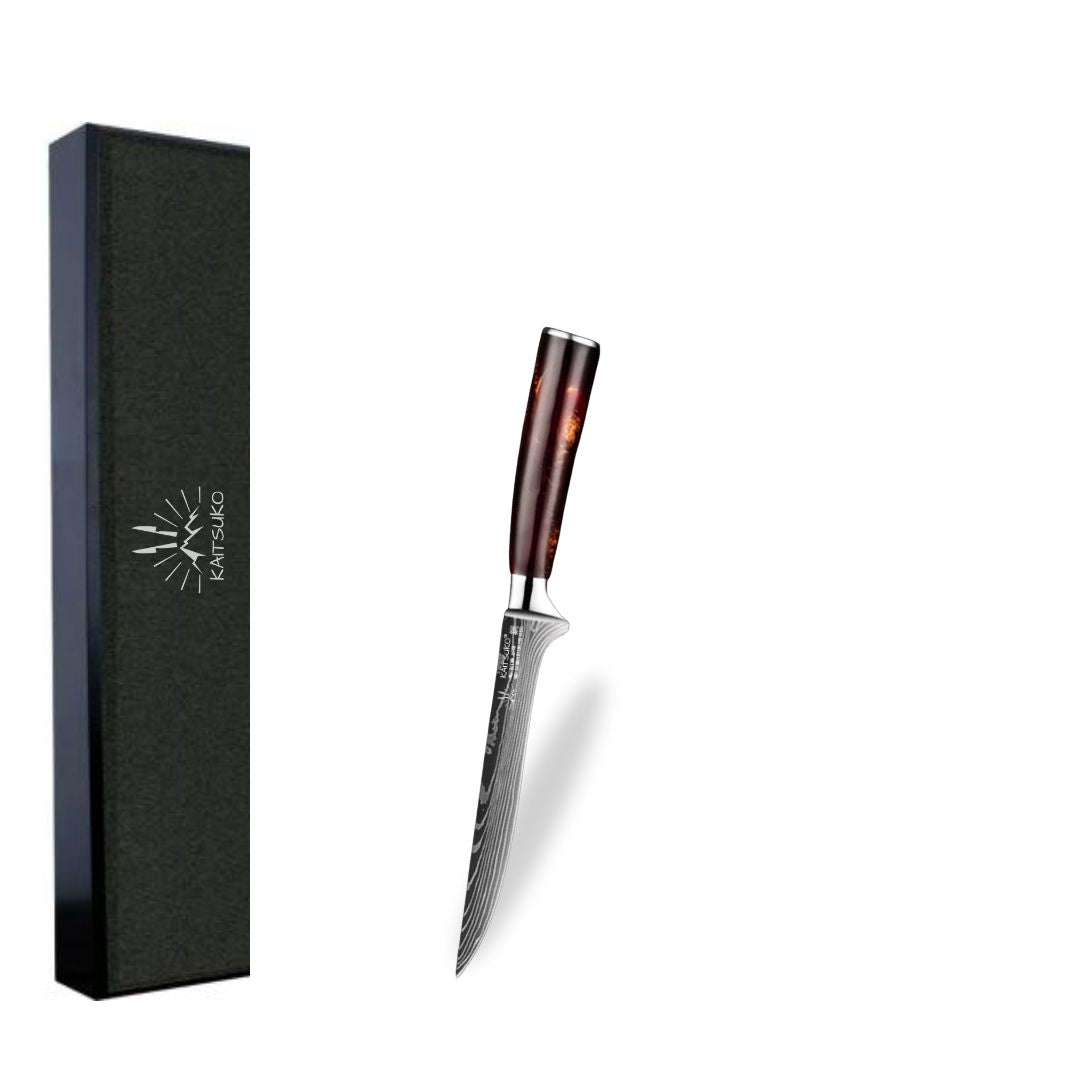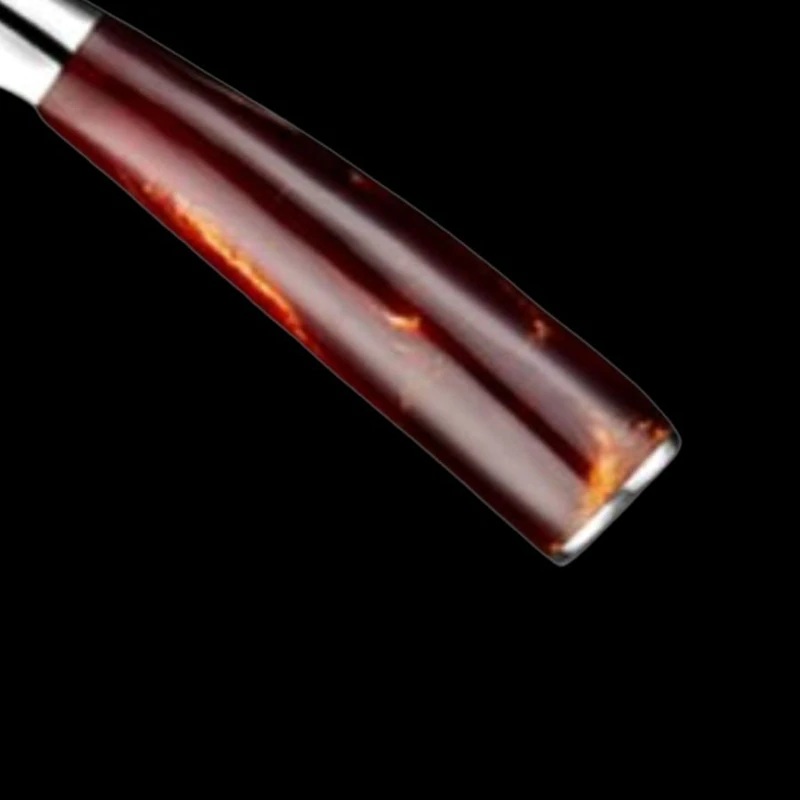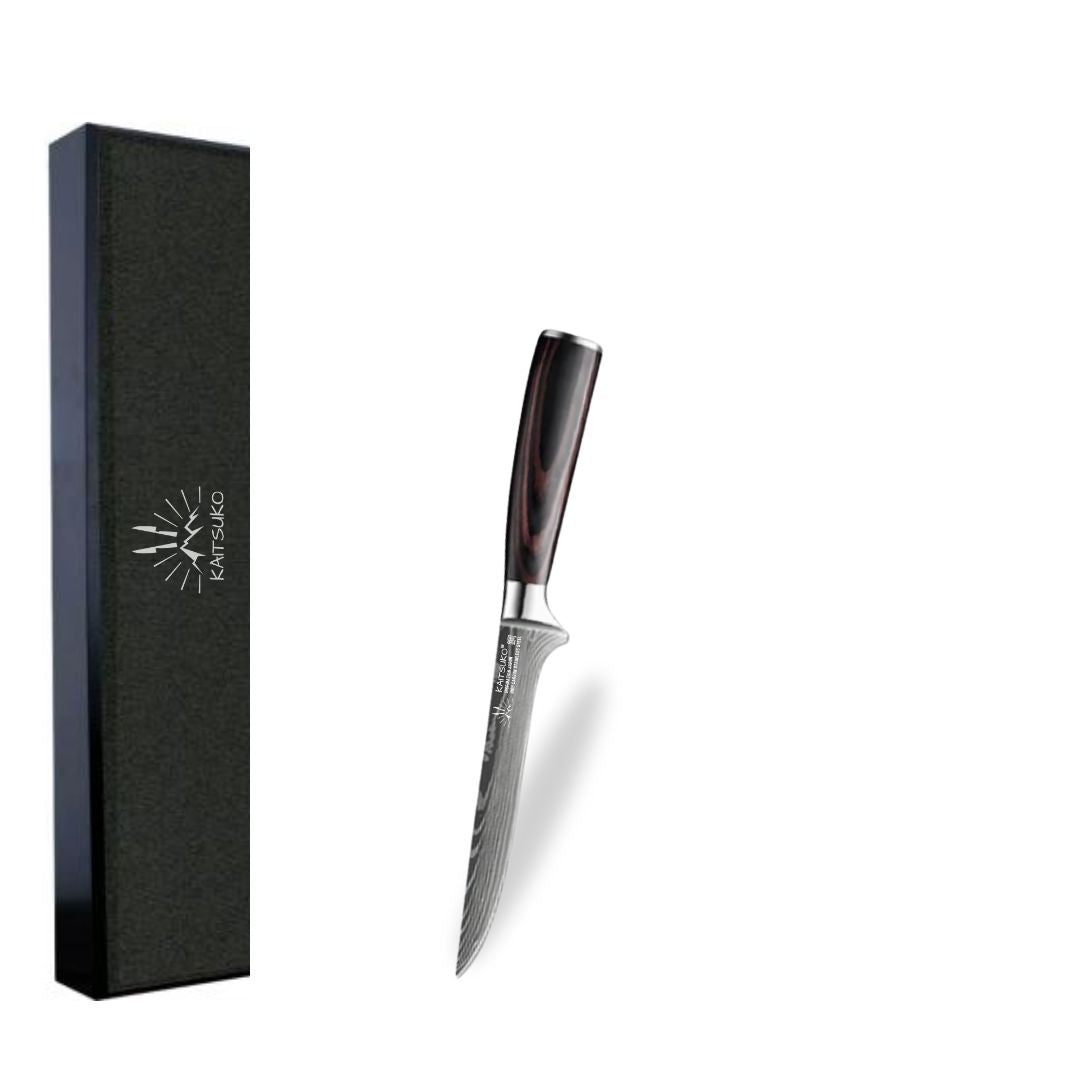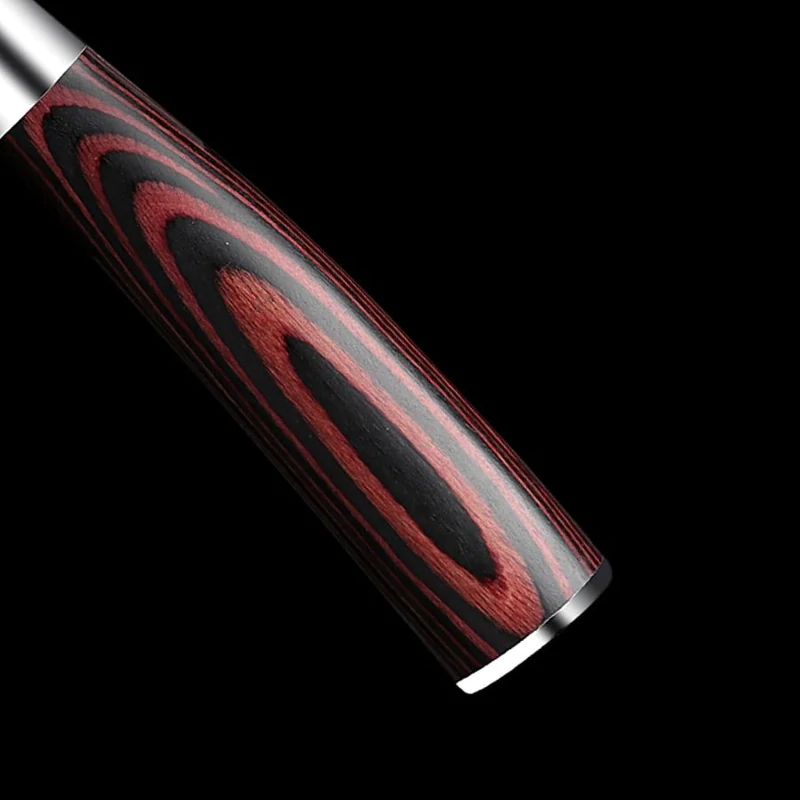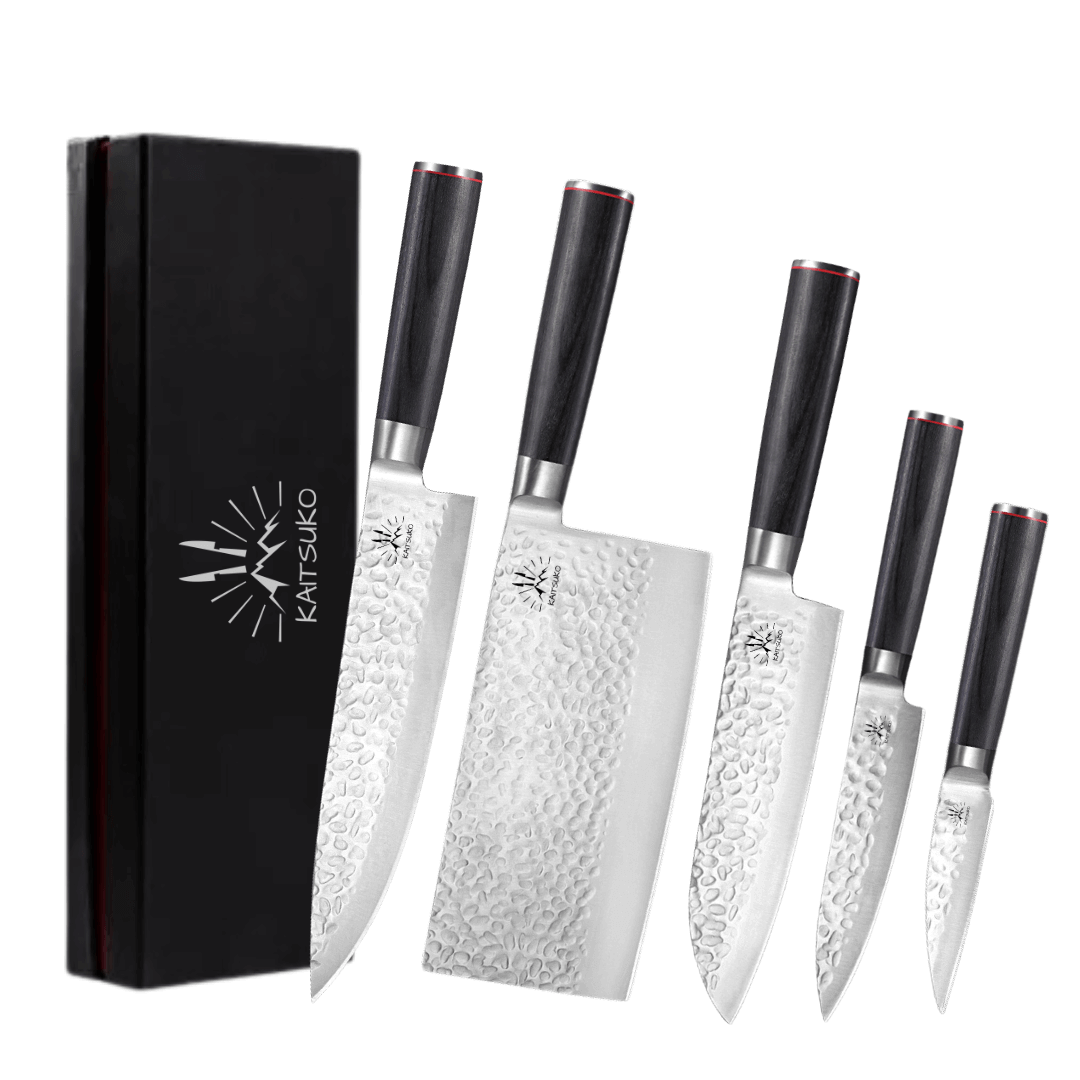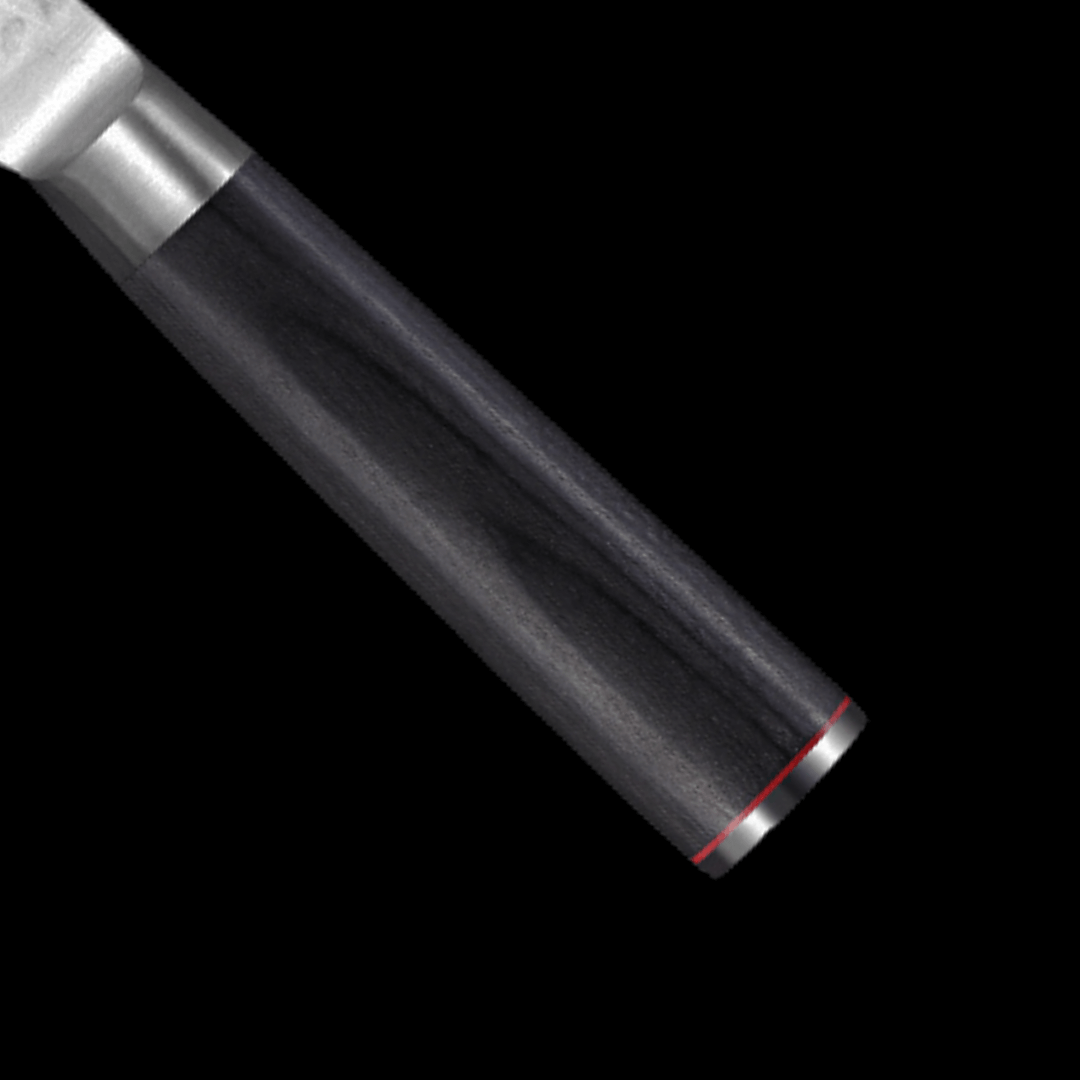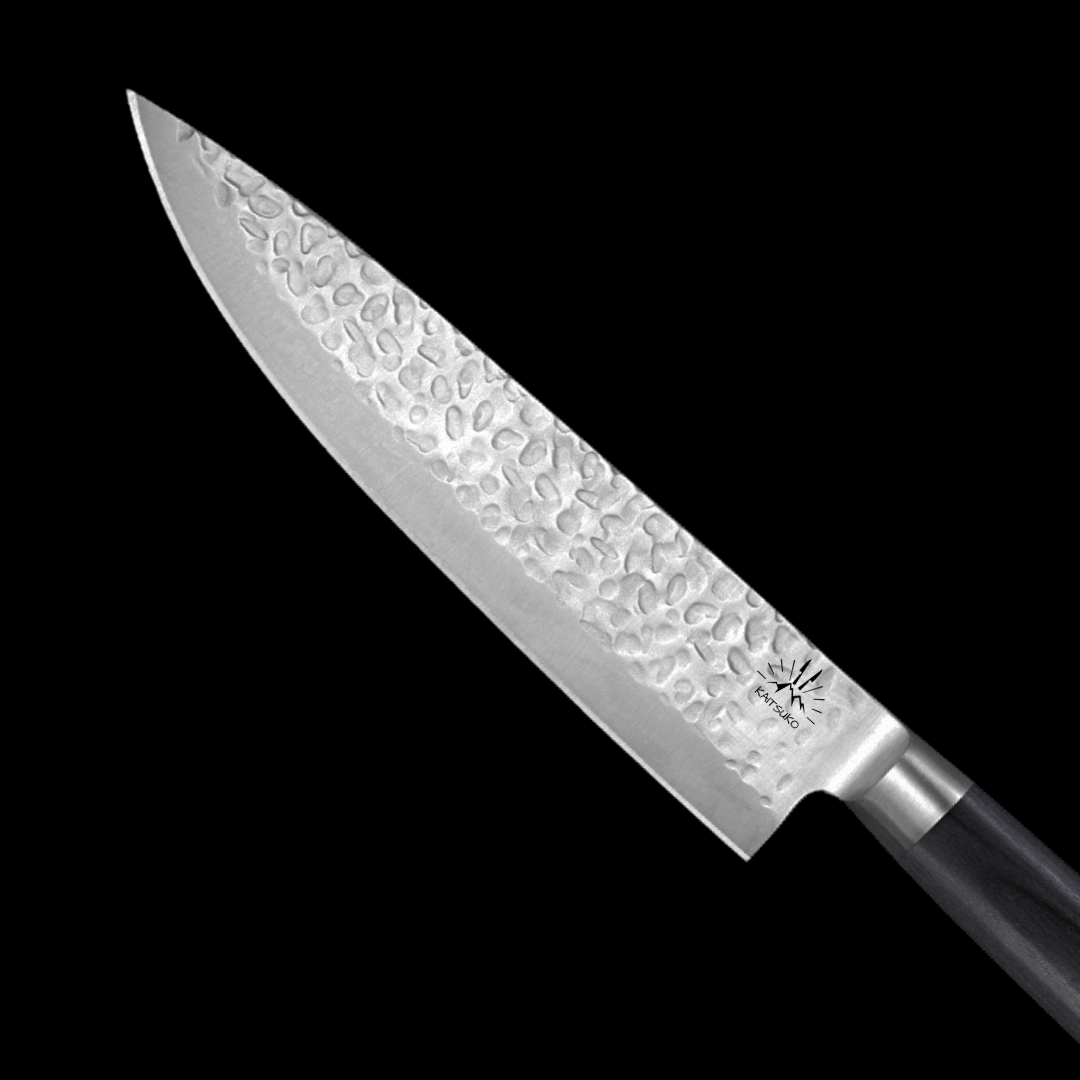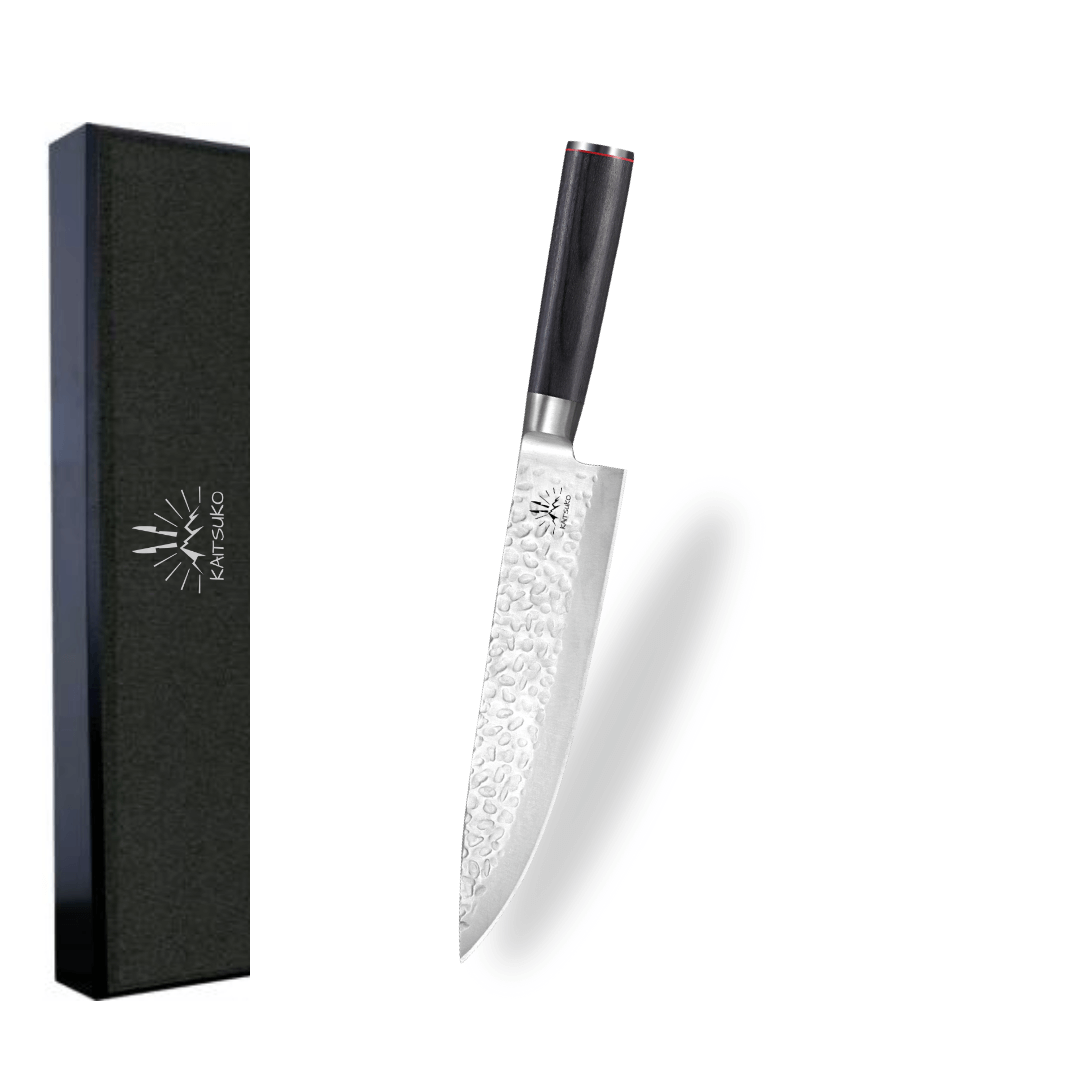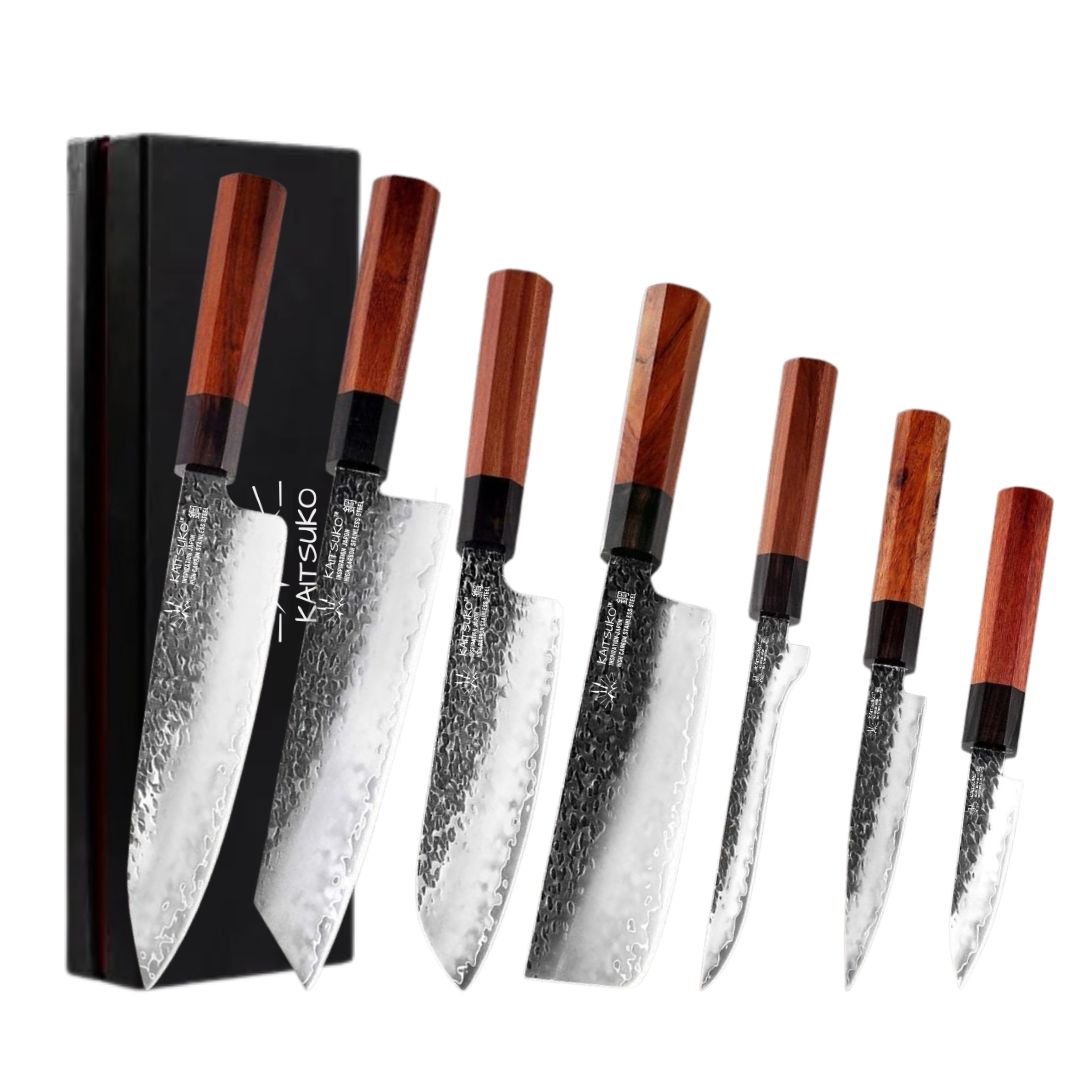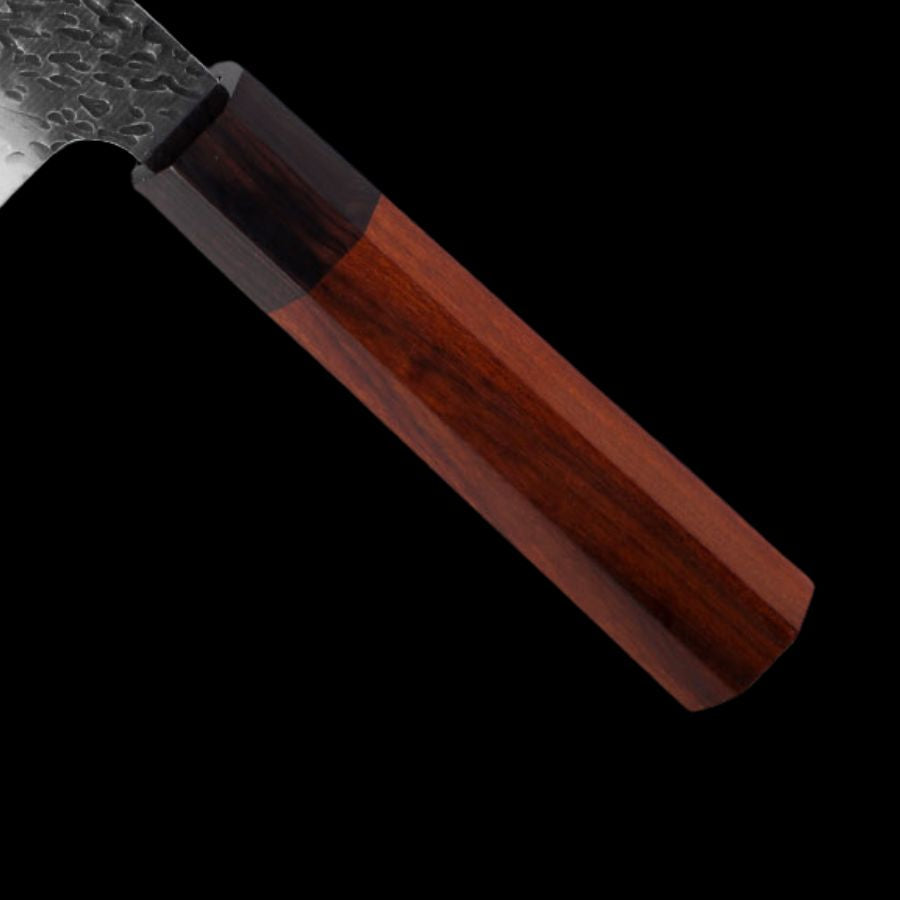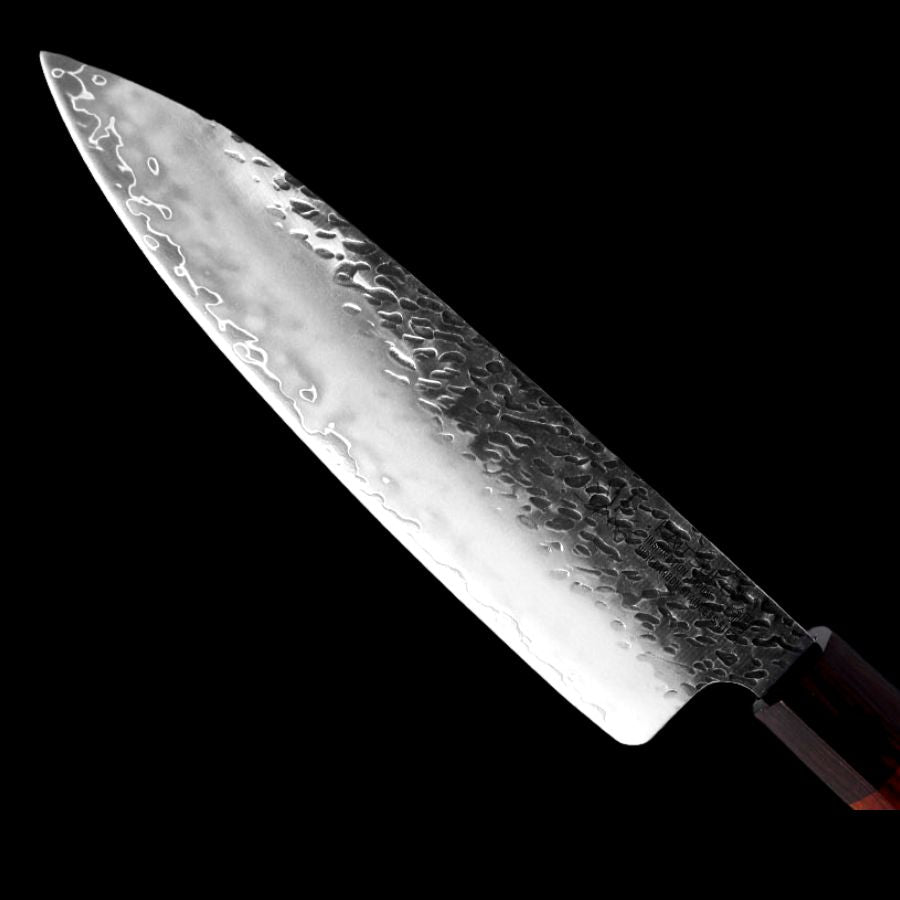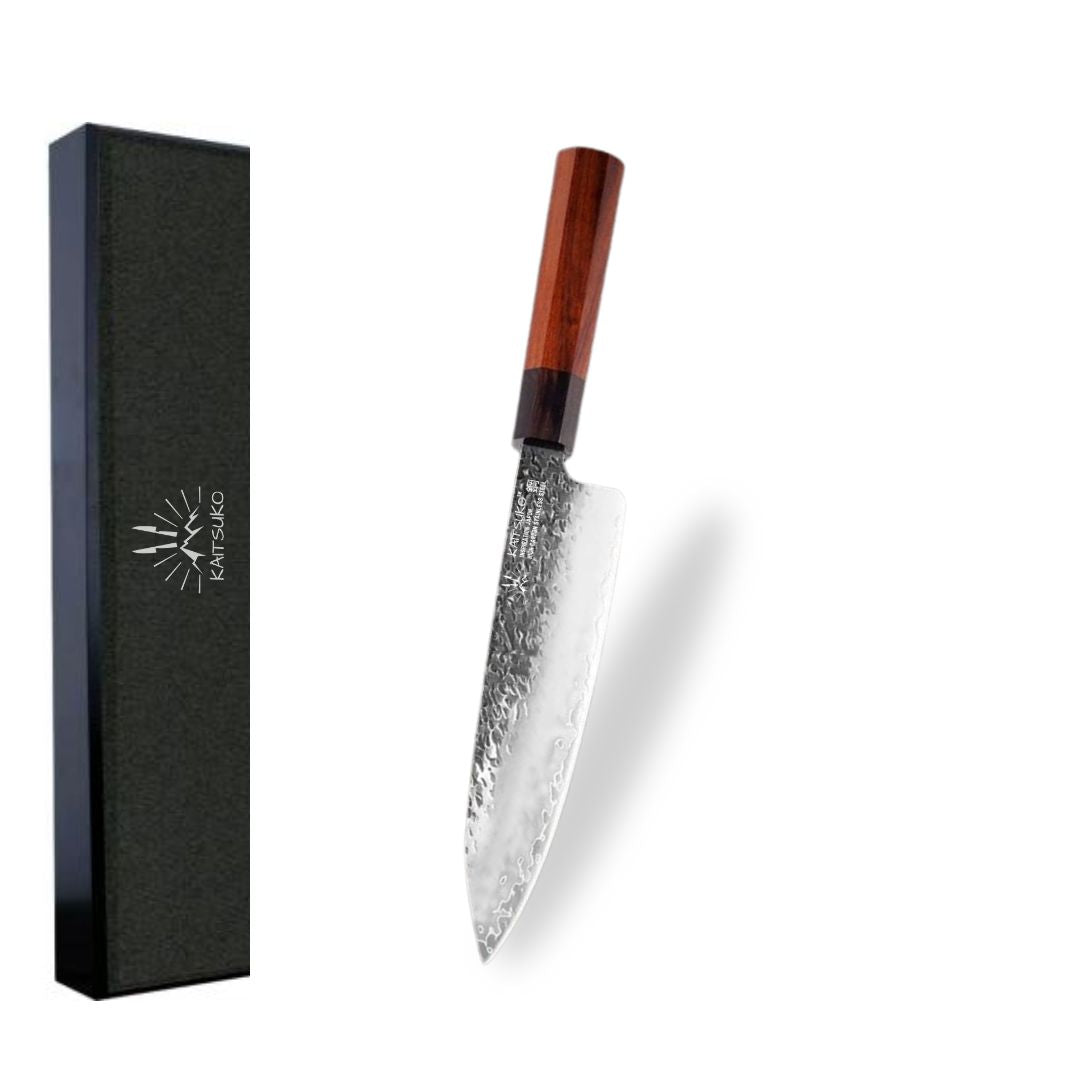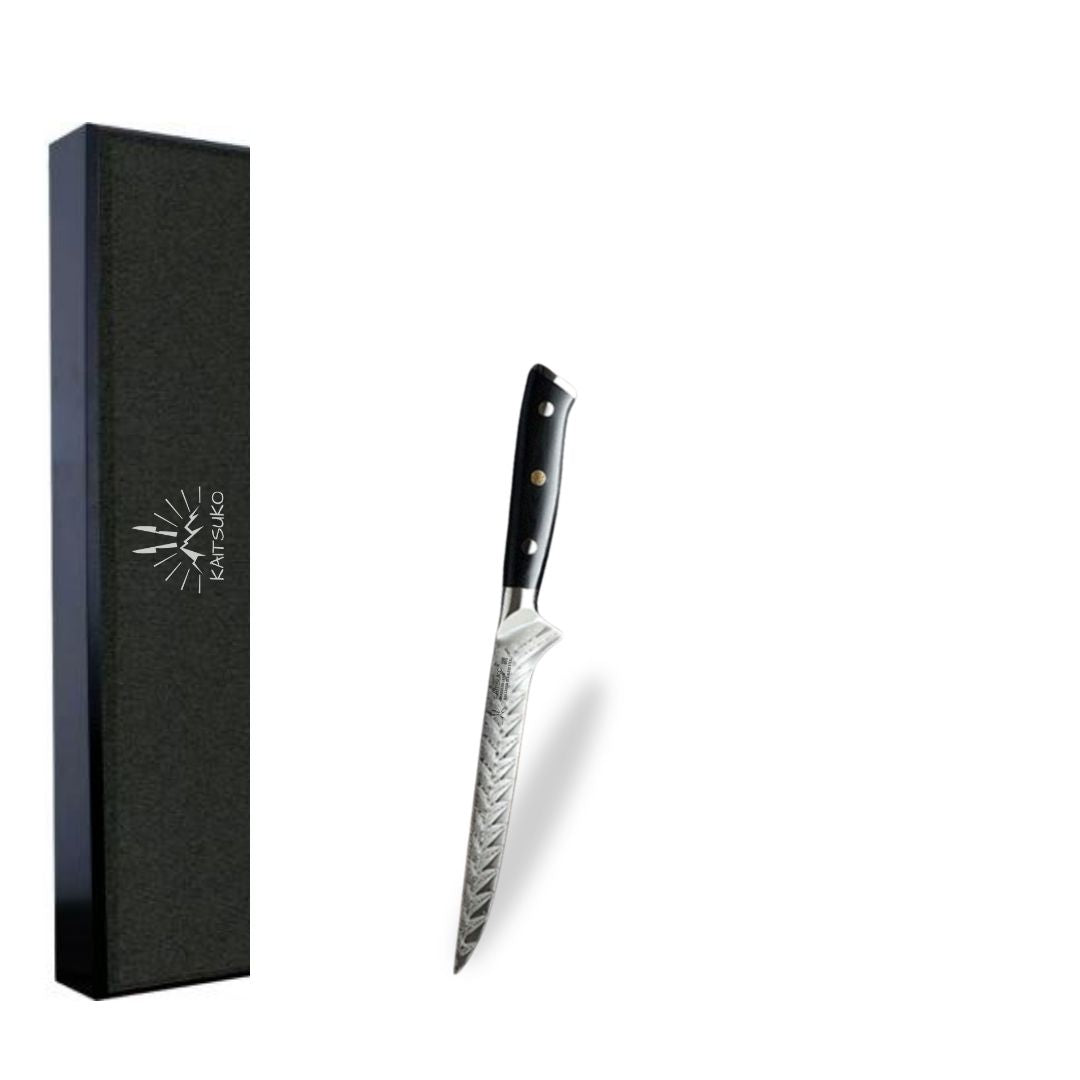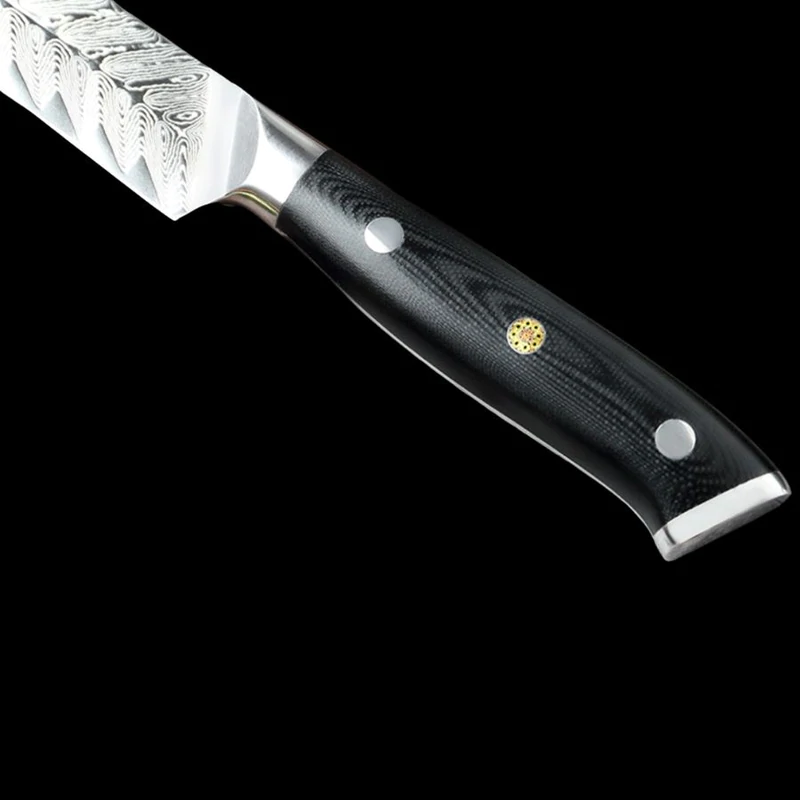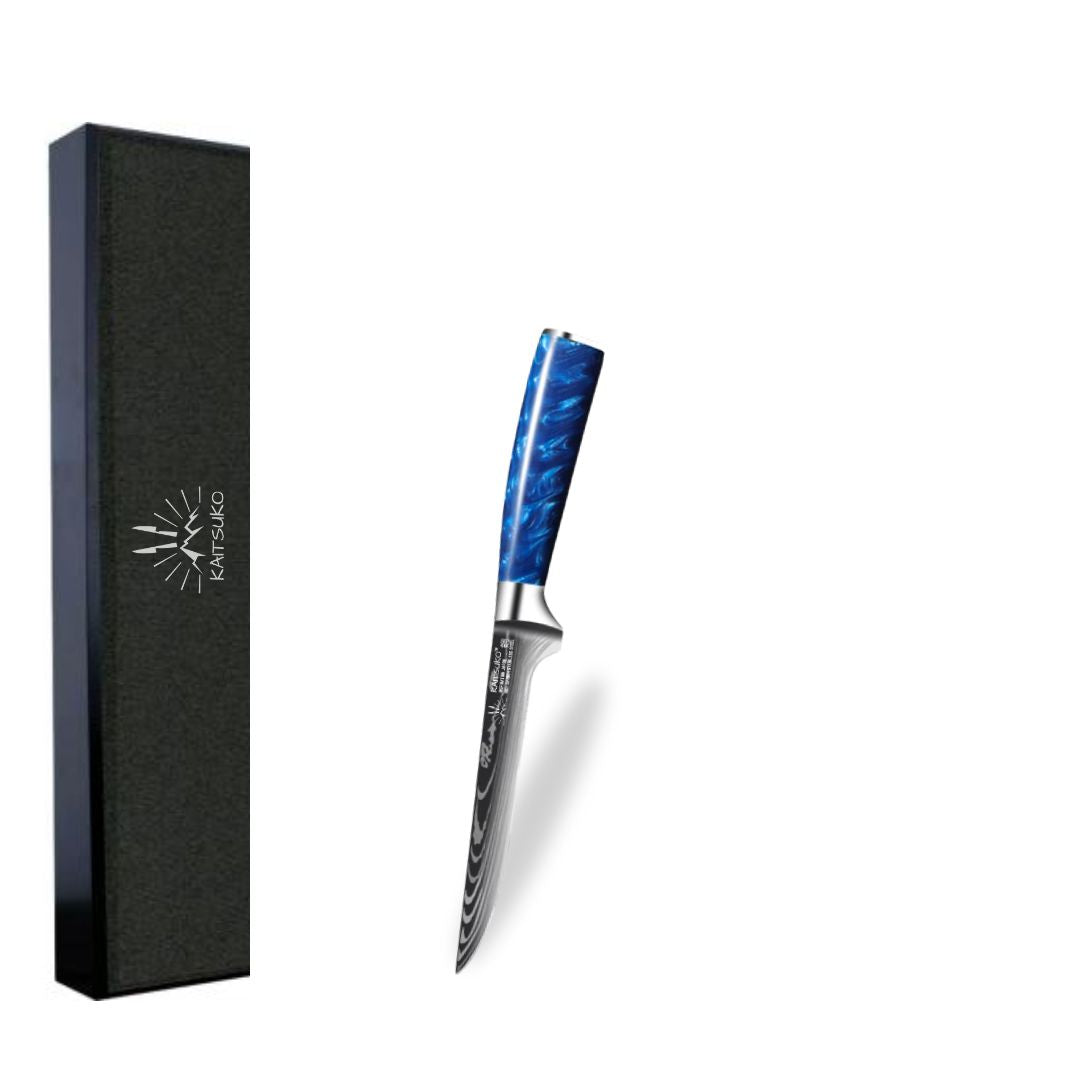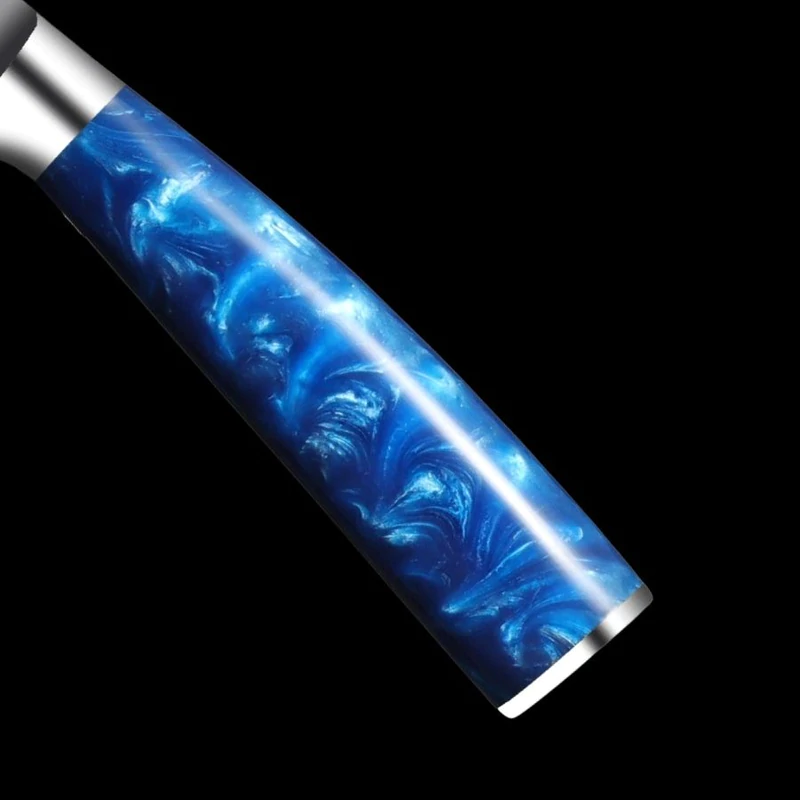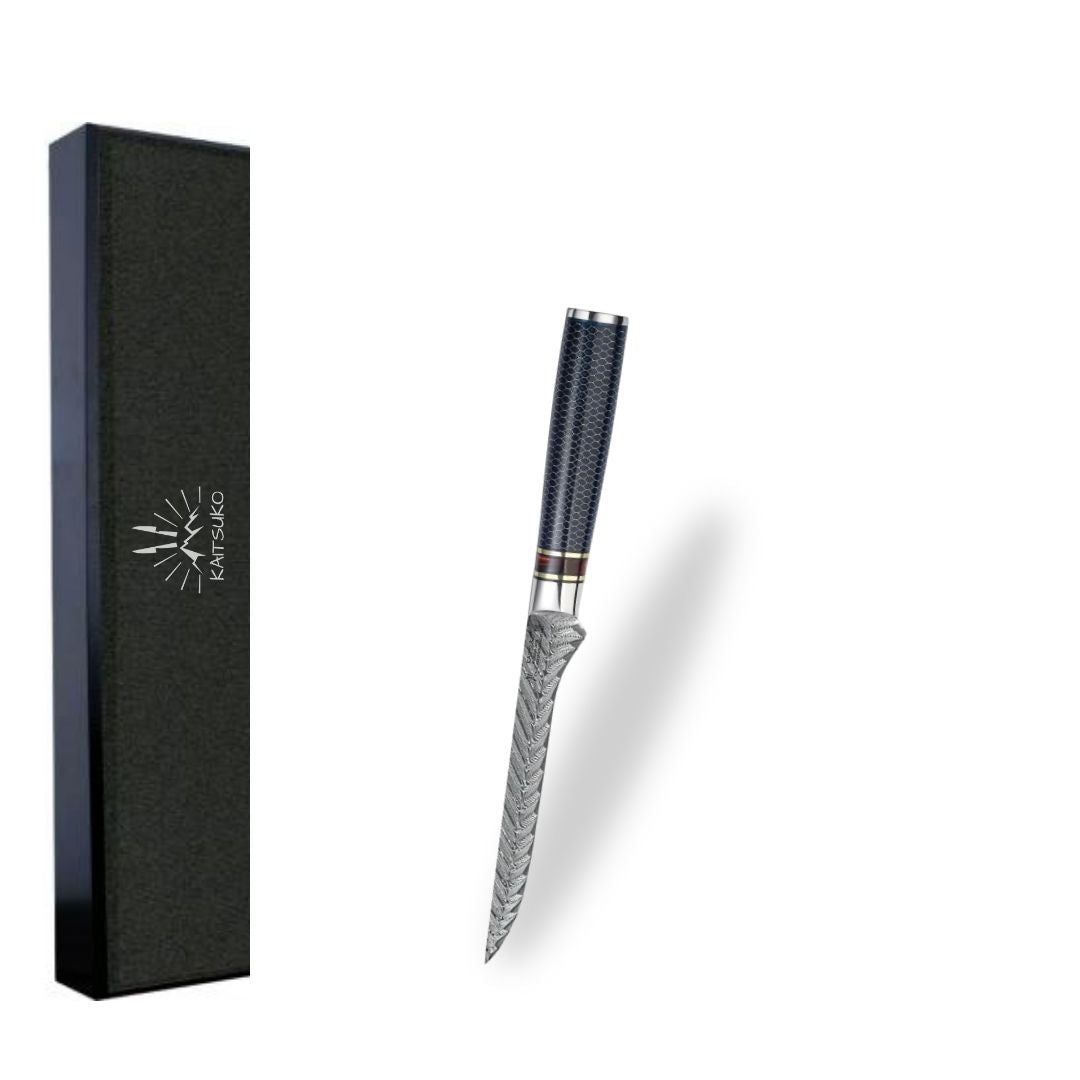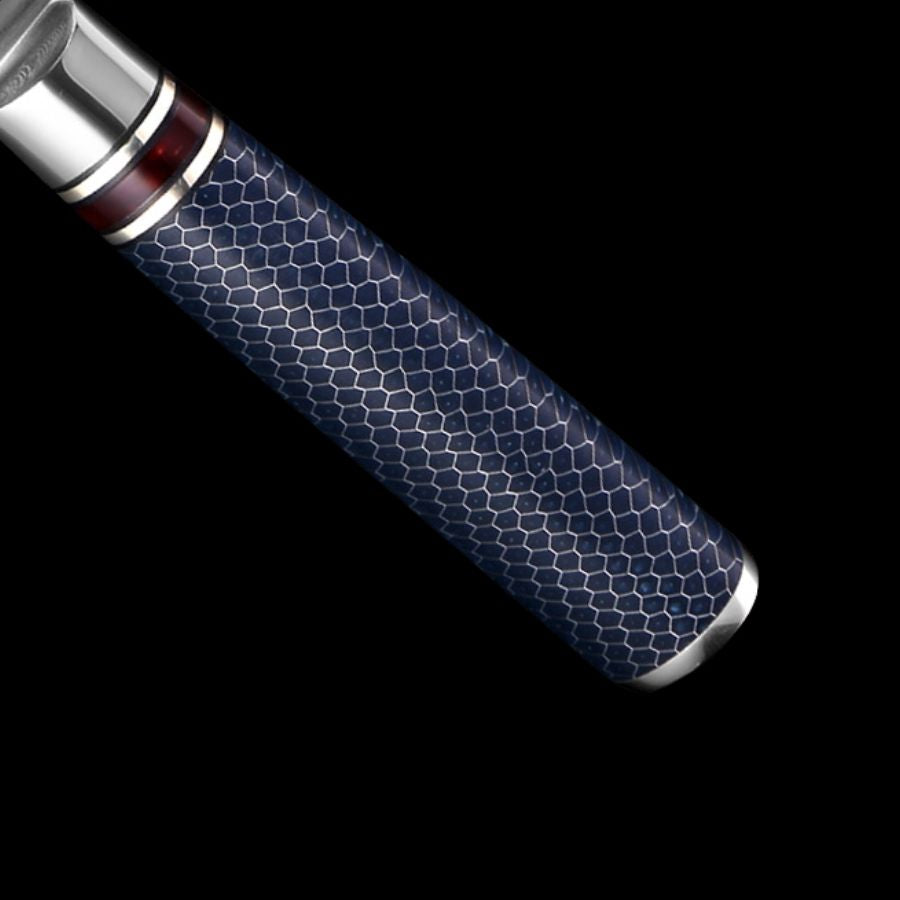Fish knives are specially designed to facilitate the filleting , boning and preparation of fish of all sizes. This is made possible in particular by their flexible and very sharp blades , allowing them to follow the natural contours of the fish.
Result: you minimize flesh waste while ensuring a perfect presentation ! Whether you are preparing a delicate sashimi or a salmon fillet, a good fish knife helps you make clean and precise cuts.
As you browse our page, you will discover a selection of the best fish knives available on the market. We have carefully chosen each model for its quality, durability and performance, in order to offer you the best tools for your culinary needs. Details to follow!
What is a fish knife?
A fish knife is a specialized kitchen tool designed to make preparing and cutting fish easier . Unlike traditional kitchen knives, fish knives have thin, long, flexible blades that are often slightly curved, allowing for precise and delicate cuts. This flexibility is essential for following the natural contours of the fish and avoiding tearing the delicate flesh . It is important to know that the blade length generally varies between 15 and 30 cm , so as to provide you with a large cutting surface for long, clean fillets.
Fish knives are also distinguished by their ability to effectively debone fish. Their design allows them to slide easily between the flesh and bones, minimizing waste and maximizing the use of the fish flesh. The materials used for these knives also play a role in this, as they are often of high quality and corrosion resistant.
There are several types of fish knives suitable for different preparation techniques:
-
The filleting knife , with its extremely thin and pointed blade, is perfect for obtaining impeccable fillets;
-
The Deba knife , of Japanese origin, is thicker and heavier, ideal for cutting through the bones and edges of larger fish.
The Benefits of Using a Fish Knife
Precision and fineness of cutting
One of the main advantages of using a fish knife is its ability to offer unmatched precision and finesse of cut . Thanks to its thin, flexible and sharp blade, this type of knife allows you to follow the contours of the fish with great accuracy, minimizing flesh loss and ensuring clean and uniform fillets.
Take our Tokyo collection for example , featuring authentic Japanese knives made with high carbon steel and coated with stainless steel, making them extremely sharp and perfect for cutting sushi and fish in general.
This precision is all the more important for delicate preparations, such as sashimi or fish carpaccios , where each slice must be perfect. The fineness of the cut offered by a fish knife not only enhances the presentation of the dishes, but also guarantees an optimal texture in the mouth!
Adaptability for different types of fish
Another major advantage of fish knives is their adaptability. exceptional for different types of fish! Whether you're working with delicate fish like salmon and trout or more robust species like tuna and cod, a fish knife is designed to adapt to every situation.
The variety of blade sizes and shapes available allows you to choose the ideal tool for each specific task, whether filleting, boning or slicing.
For example, filleting knives with their long, flexible blades are perfect for following the curves of delicate fish without damaging them, while more robust knives like the Deba knife are better suited to larger or thick-skinned fish.
The different types of fish knives
Sole fillet knife
The sole fillet knife is specially designed for precise filleting of flat fish such as sole.
Thanks to its long, narrow and very flexible blade, it allows you to follow the contours of the fish with great precision, making it much easier to separate the flesh from the bones without damaging the delicacy of the fillet.
Yaganiba
The Yanagiba is a traditional Japanese knife, renowned for its long, thin blade, specially designed for slicing fish into thin strips, ideal for sashimi and sushi.
Its asymmetrical blade, sharpened on one side only , offers you exceptional cutting precision, allowing you to make clean and regular slices without tearing the delicate flesh of the fish.
The length and sharpness of the Yanagiba blade guarantee smooth cutting , essential for preserving the texture and appearance of raw fish.
How to choose your fish knife?
Blade materials
To choose the right fish knife, the first essential step is to choose the blade materials :
-
Stainless steel blades are commonly used for their corrosion resistance and ease of maintenance, ideal for everyday use;
-
Carbon steel , although requiring more care to avoid rust, offers superior hardness and exceptional sharpness, perfect for precise cuts;
-
Damascus steel blades combine aesthetics and performance, with increased durability and sharpness thanks to their multiple layers of metal (example with our Komodo collection , a set of 7 knives made of high quality Damascus steel);
-
Finally, ceramic blades , very sharp and light, are ideal for delicate cuts, but they are more fragile and require careful handling.
Handle ergonomics
The ergonomics of the Handle is another key factor in choosing a fish knife. A well-designed handle means a comfortable and, above all, secure grip , reducing fatigue during long cutting sessions.
Materials like wood, composite or high-end plastic ensure good grip and increased durability. The shape of the handle should fit the palm of the hand for optimal control and precise handling, essential for delicate cuts.
A good balance between the blade and the handle thus improves stability and precision, making cutting more efficient and enjoyable!
Which knife to use to fillet fish?
To fillet fish , the ideal knife is of course the fillet knife , characterized by its long, thin and flexible blade.
Its design allows you to follow the contours of the bones and separate the flesh precisely, thus minimizing waste. Using a fillet knife ensures maximum extraction of the flesh, essential for delicate and aesthetic preparations, whether it is flat fish such as sole or round fish such as salmon.
Which knife to use to cut salmon?
The Yanagiba remains the knife par excellence for cutting salmon . With its long, thin and very sharp blade, it is designed to slice fish into thin strips, ideal for sashimi and sushi.
Its asymmetrical blade allows for precise and clean cuts without tearing the delicate flesh of the salmon.
The different ranges of fish knives at Kaitsuko
Japanese fish knife
Kaitsuko’s Japanese fish knives, such as the Yanagiba and Deba , are renowned for their precision and exceptional quality. Made from high-quality steels and often featuring asymmetrical blades, these knives provide a clean, precise cut, ideal for sashimi and fish fillets. Their ergonomic design and perfect balance ensure comfortable handling, essential for delicate cuts.
Professional fish knife
Kaitsuko professional fish knives are designed for optimum performance and exceptional durability. Featuring high-quality steel blades, these knives ensure precise and consistent cuts, essential for discerning chefs.
You should also know that their ergonomic design guarantees you a comfortable grip, which indirectly helps reduce your fatigue during long cuts.
At Kaitsuko, our goal is above all to help you find the best kitchen knife through our range of high-quality Japanese knives!
Frequently Asked Questions About Fish Knives
What is the name of the fish knife?
The fish knife is often called a fillet knife or a filleting knife. In Japanese cuisine, it is known as Yanagiba for thin slicing and Deba for boning.
How to maintain your fish knife?
To maintain your fish knife, hand wash it with warm water and mild soap, then dry it immediately to prevent corrosion. Sharpen the blade regularly with a whetstone or suitable steel to maintain a precise cut.






